Part 20: Voz Português

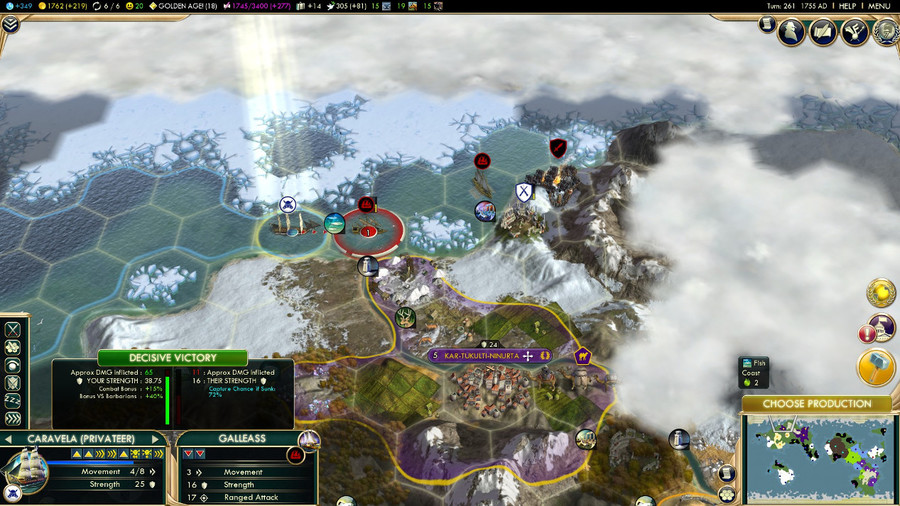
In the frozen Assyrian hinterland, the Caravela moves to remove the threat of two rogue Galleass, hopefully enabling their capture.

During their push westward, the Portuguese musketeers find themselves having to traverse treacherous hill and forest terrains that make slow their progress as Roman forces retreat behind the front lines.
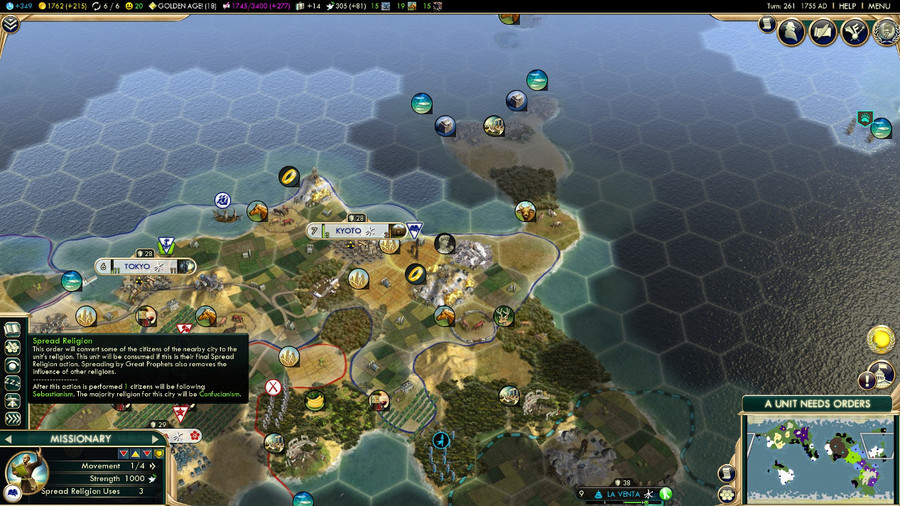
Their Sebastianist brethren find themselves in Japan spreading the word of their Goddess and saviour, but their words are unpopular in a land of men and women who worship their crustacean ancestors.
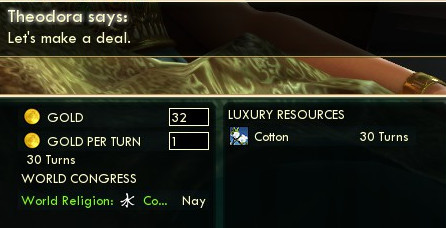
Recognizing the potential dangers of these unusual ideas gaining purchase on a greater level, The President finds herself making a deal with her friend in Theodora, hopefully undermining Venetian ambitions subtly.

Pocatello, being subjected to continued acts of passive aggression, is actually rewarded with an acceptance of his unusual offer. The consequences of this, however, are well beyond him.
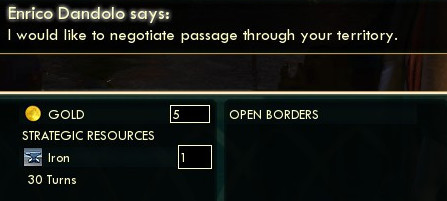
The strange Confucian doge, however, will continue to find his attempts at giving his ideas purchase in the lands of the Portuguese challenging.

The smaller war in the north proceeds as hoped, and the progress on the eastern front has actually dissuaded the Roman from his attempt at Brazilian domination.
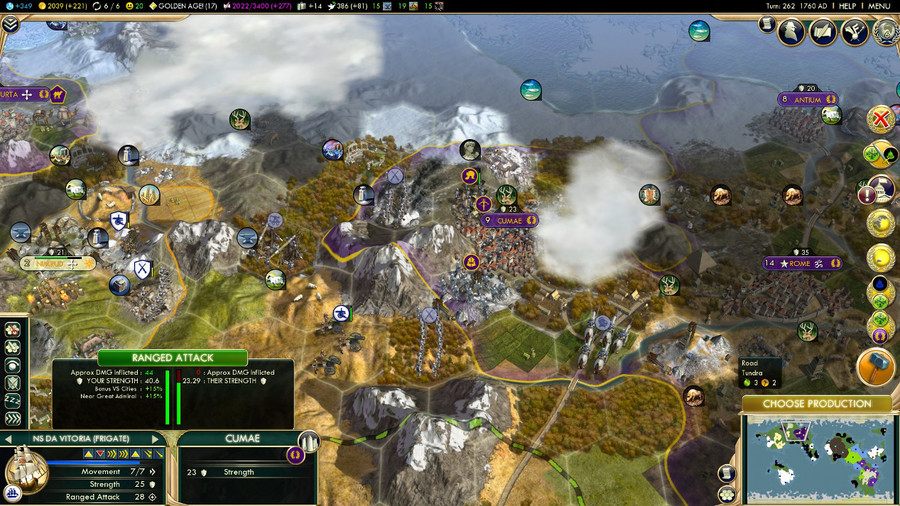
Closing in on the mountains, a Roman city comes into view, protected by natural barriers but able to stymie westward assault.

Though their ideas fail to sway the people of Tokyo, even in spite of the presence of a Portuguese hero, the missionaries continue to do as their Goddess commands them.
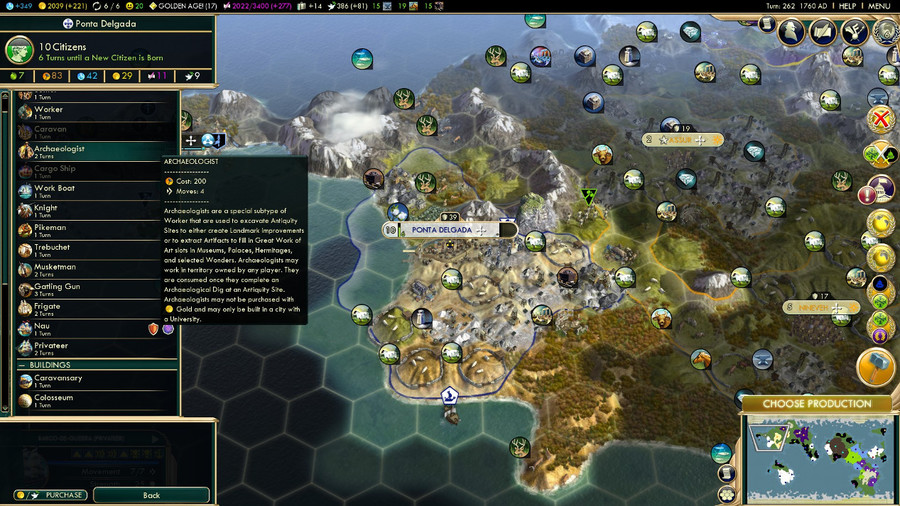
Ponta Delgada understands just as well that the past is a treasure that warrants discovery.

Passive aggression is something that slips from time to time with a snide remark.
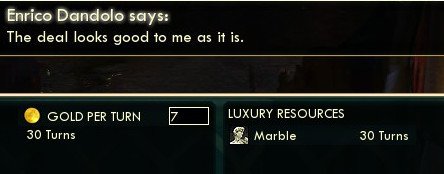
Dandolo's latest plea for open borders is re-constituted as a simpler trade deal.
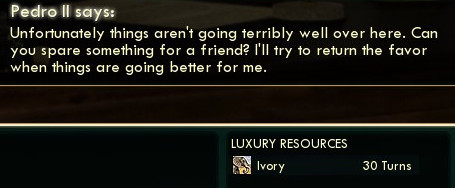
Pedro's situation is dire, and thus deserving of some consideration.

Luanda provides some additional support in the form of yet another Privateer, and local shipyards have it ready in record time.

Even Cabo Rachado begins to join the modern world as it becomes a city of some renown.
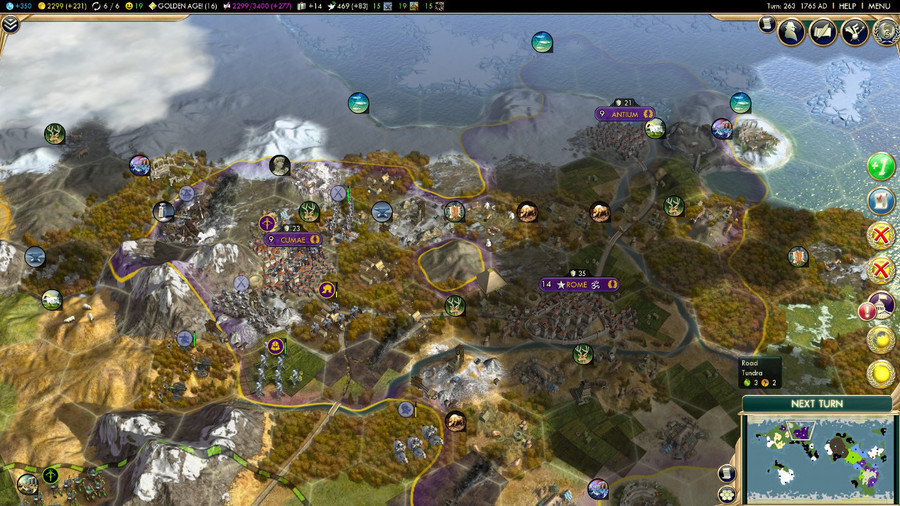
The plan developed by the front is to coordinate with the raiding knights and commence an encirclement of Cumae.
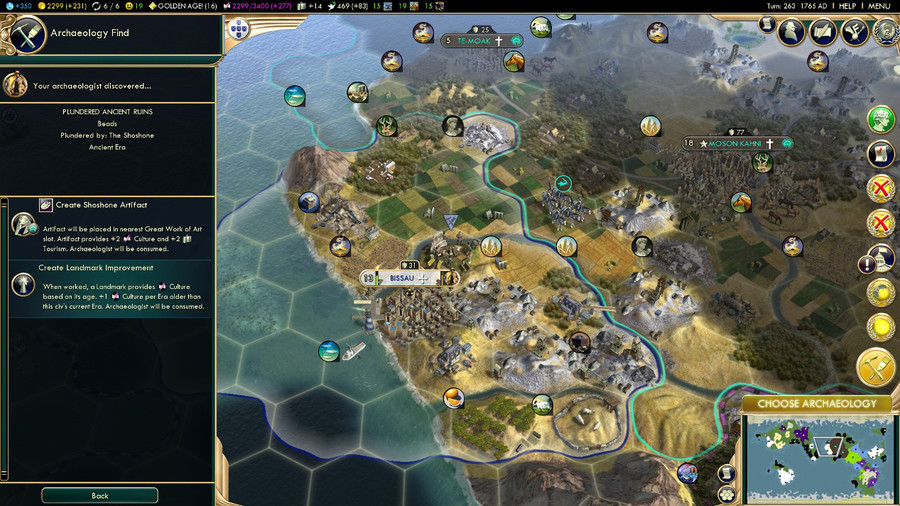
Bissau begins to develop an acknowledgement of its history, and a generation of locals begin to understand that the Shoshone influences and minorities in the city were responsible for many of its earliest innovations. There is a sense that the locals have been marginalized in the current climate of Portuguese social dominance, but the designation of the area as a site of historical importance to the Shoshone helps the local culture bloom in fascinating ways.

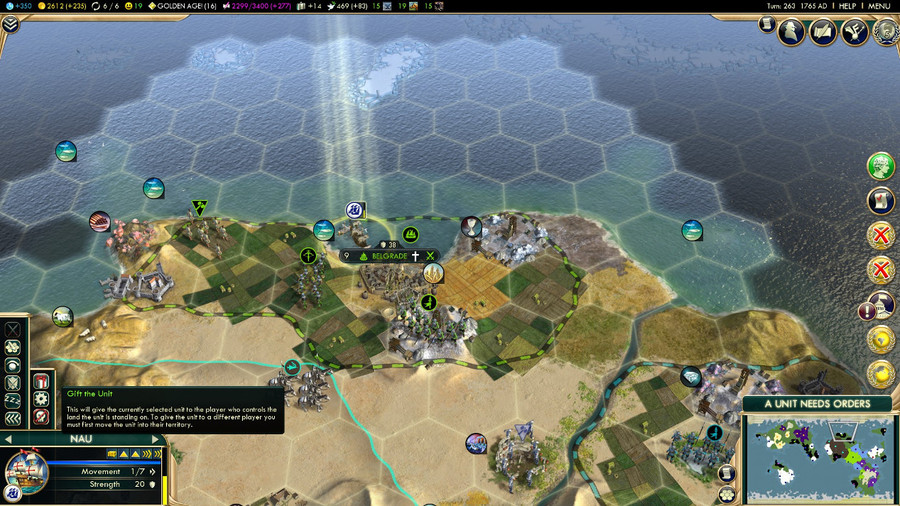
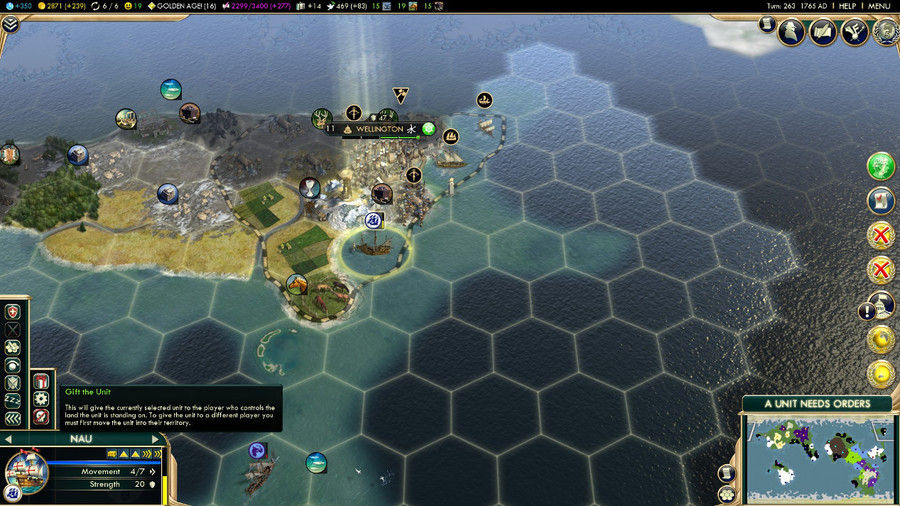
In the interest of developing more favourable reputations with like-minded City-States, the nation implements a plan known as the Vancouver Doctrine, in which surplus Nau such as purpose-built trade vessels complete their tasks and are then offered to the City-State as part of a trade deal for increased concessions towards the Portuguese.
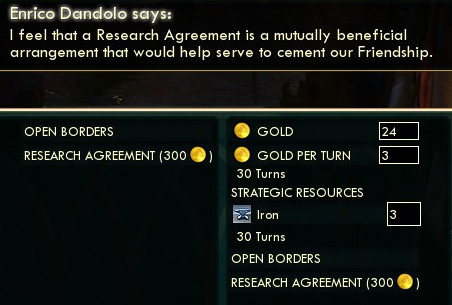
Dandolo is impressed with the wry move, and offers to make a deal with the President, offering to share knowledge contained in the Great Library of Venice in exchange for similar considerations from the Universidades.
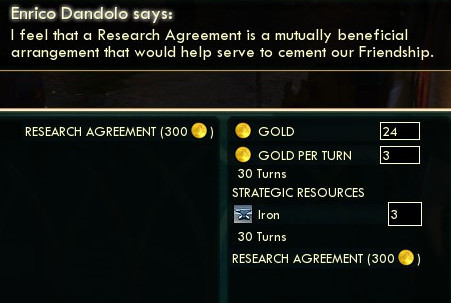
The President strikes a suspicious and familiar line from the agreement, and Dandolo agrees to the revised plan regardless.
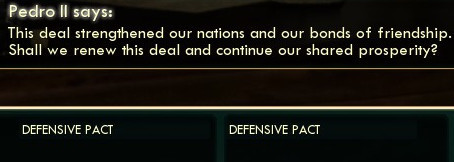
Though it comes slightly too late to be opportune, the treaty of mutual defence with Brazil is renewed for the future.
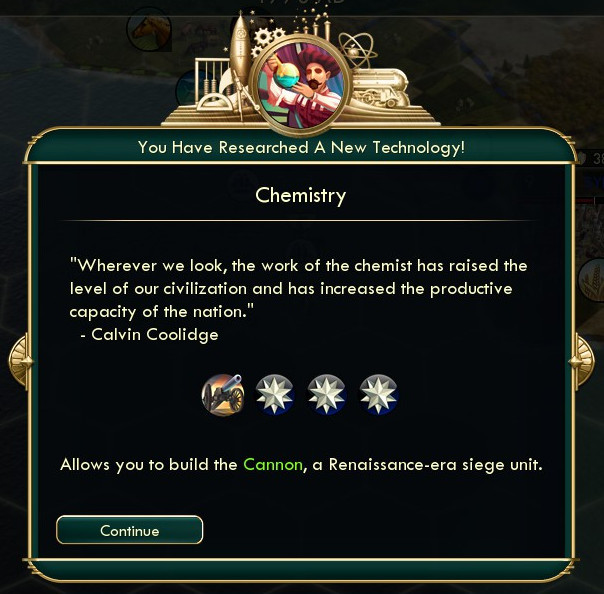
The progress of science is a better measure of time than any.

It is in this age that a new type of music begins to sweep the nation.
There are some debates as to the origin of what we now call "Fado", but the most common interpretation is that it emerged from somewhere in Lisboa, where a young guitarist by the name of Maria Severa performed for a small but dedicated audience, who composed poetry and music for her to perform.
It is said to fill listeners with a sort of sadness of inevitability, but with undertones of strange joy and fleeting vivacity. It quickly comes to be regarded as a national treasure, though Maria Severa herself died of illness while she was still quite young.
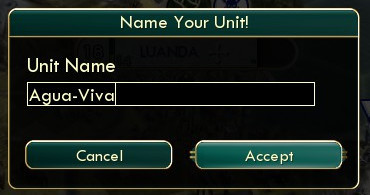
Still, a war continues as always, and Luanda's new jellyfish takes to the seas.


Being purpose-built as a city, Ceuta sees early and significant developments to its manufacturing processes.
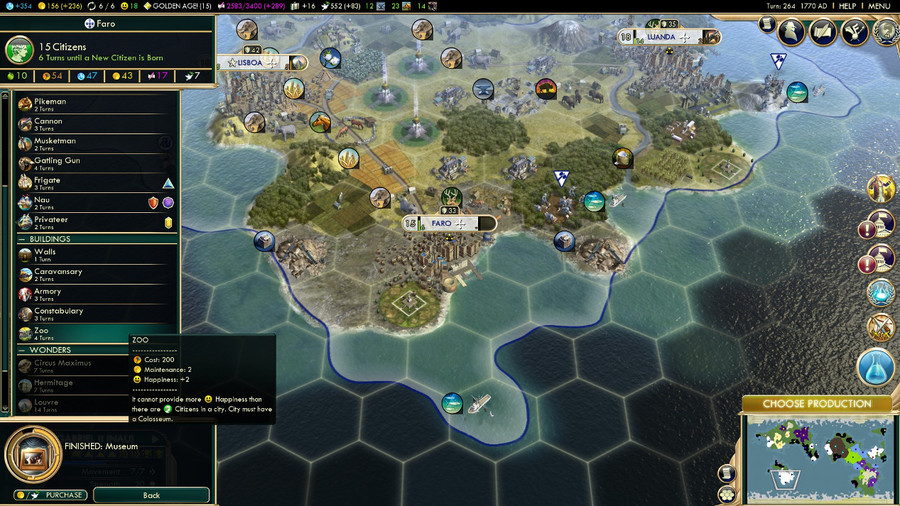
Faro looks to other entertainments as a distraction, and the zoo is used to showcase the hardiness of animals exposed to the difficult local winter
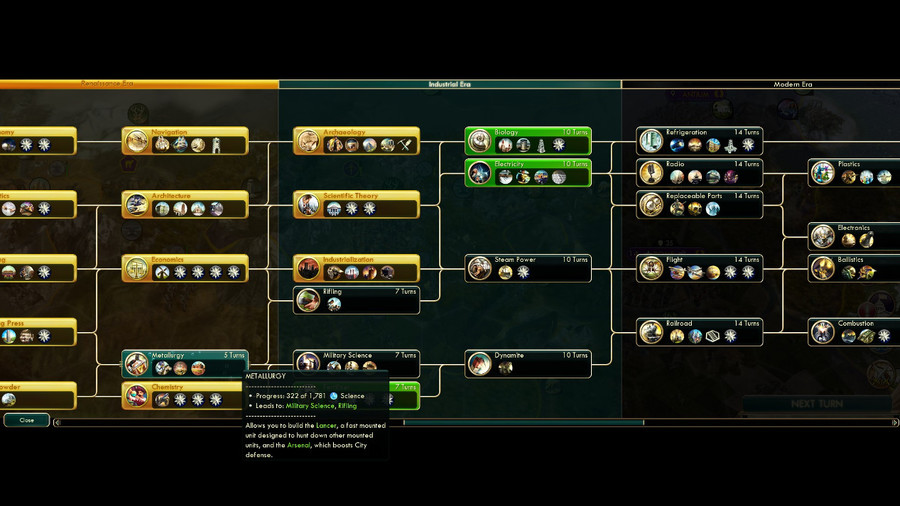
The attentions of sciences must again turn to war.
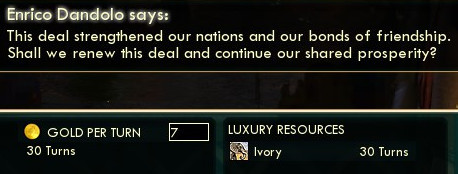
Dandolo seems content to restrict his requests to simple trade for the time being.
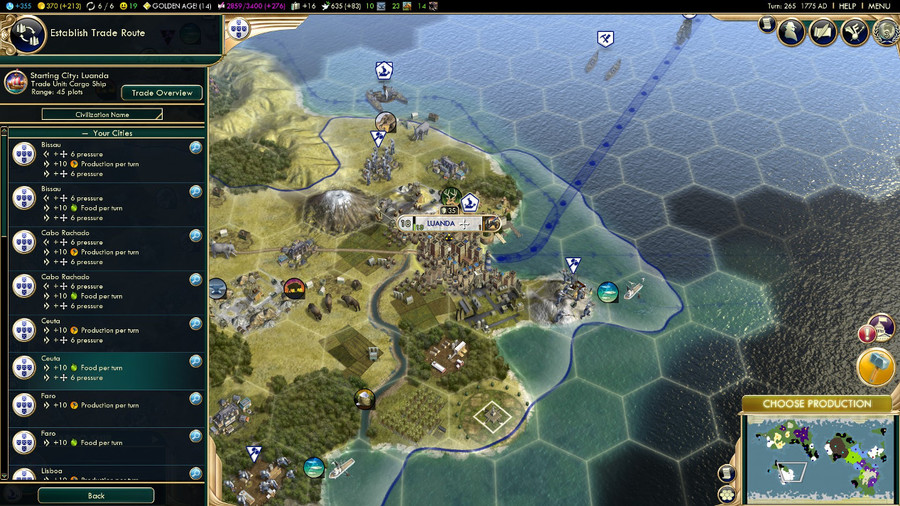
Ceuta needs to grow quickly to fulfill its task, and Luanda moves to support it with Casa-bought food imports.

The war was starting to exert considerable pressure on the Portuguese forces, leading to a failed initial encirclement.
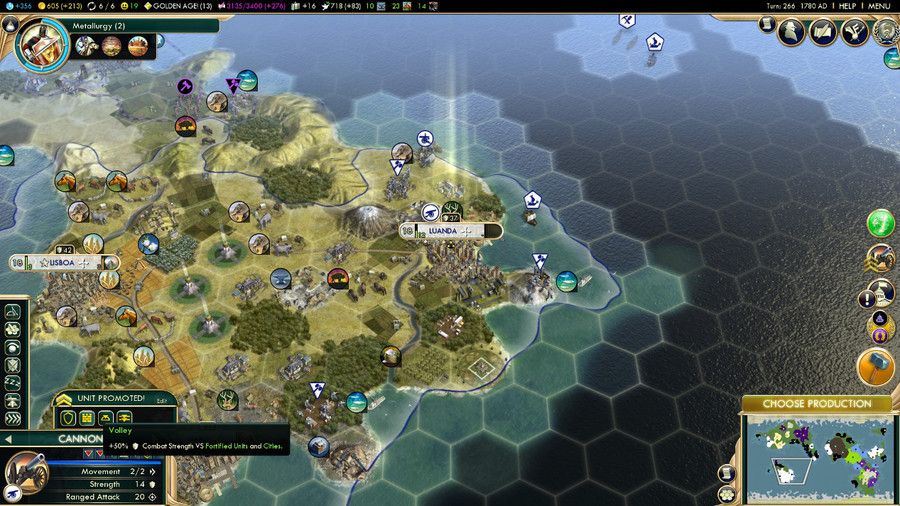
Reinforcements were being built in Luanda, but they would take a significant amount of time to arrive.
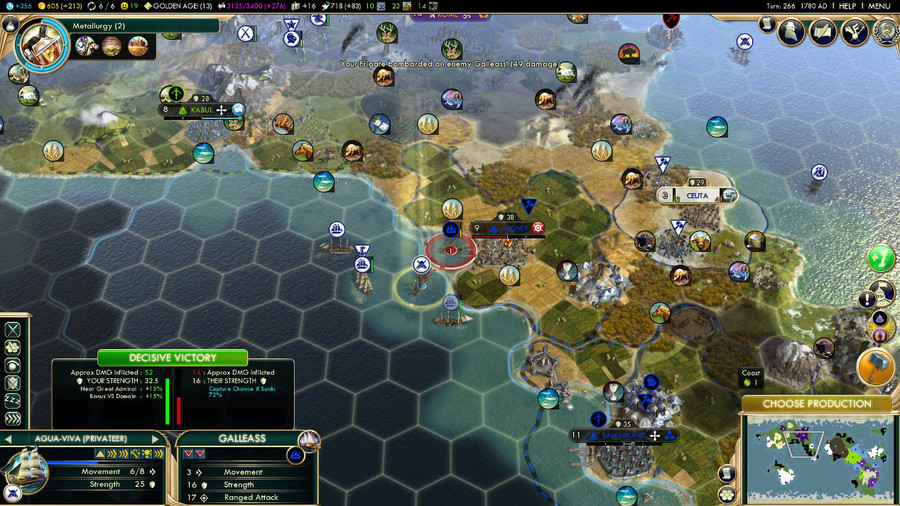
The Agua-Viva had no such trouble, and the Sydneysider fleet (as it were) was quickly outmatched.
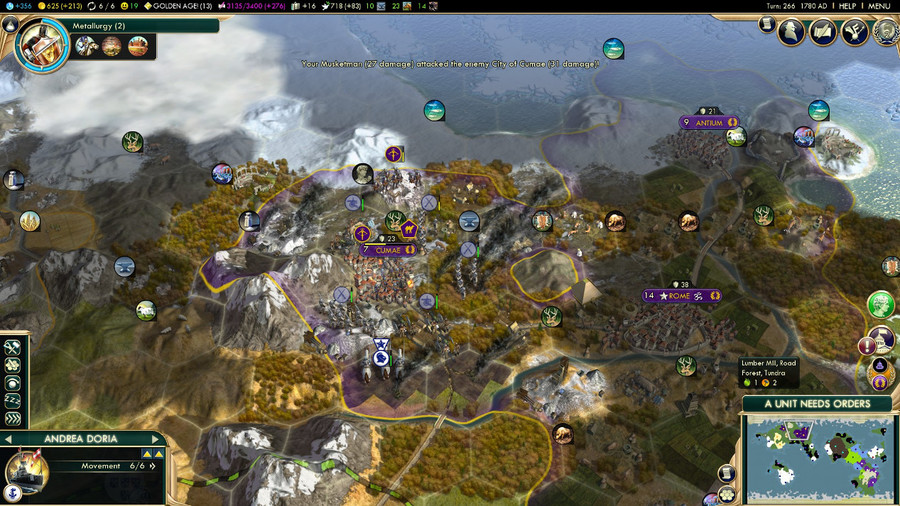
Yet, the pressure was starting to build on the Roman as well.
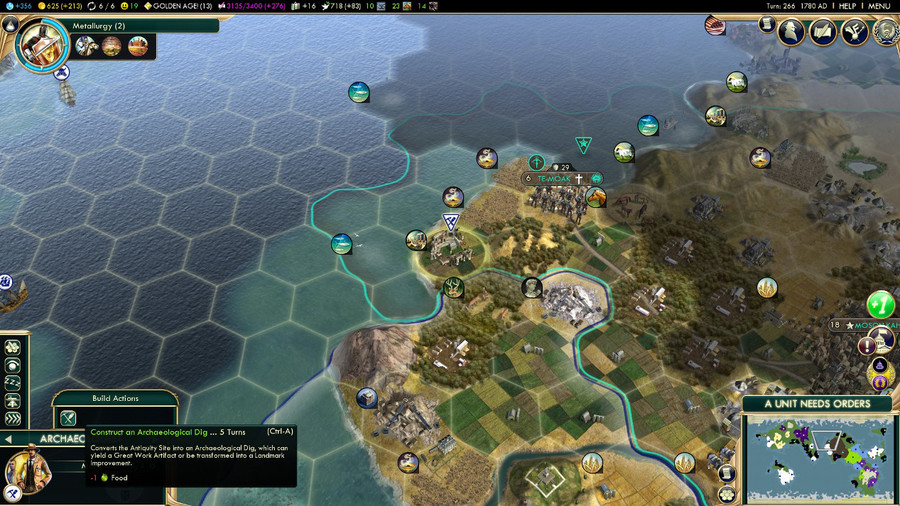
Whether Portuguese aggression is fierce or subtle, it makes life for the despots and warmongers of the world that much poorer.

Yet, the President was starting to tire of the empty gestures of friendship
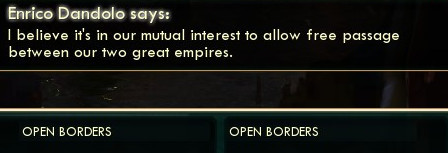
Though not as much as she was of Dandolo's requests.

With these thoughts, she stood before the assembly at the Conference of Lisboa. The Roman delegate was visibly slouched in the corner, while the Shoshone and Brazilians were yelling at one another with enough force to derail any nearby conversation. However, those assembled fell silent when her turn came to speak.
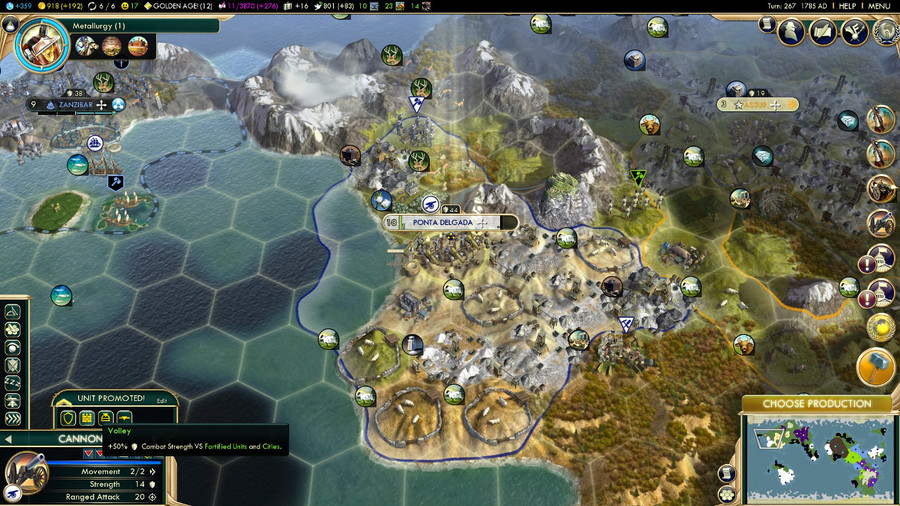
"We live in times of great difficulty for all people, conflicts are escalating around the world and it seems that every day some new cause is found for us to tear each other asunder. Perhaps the fate proscribed to us by the great Sebastiao is indeed unavoidable."
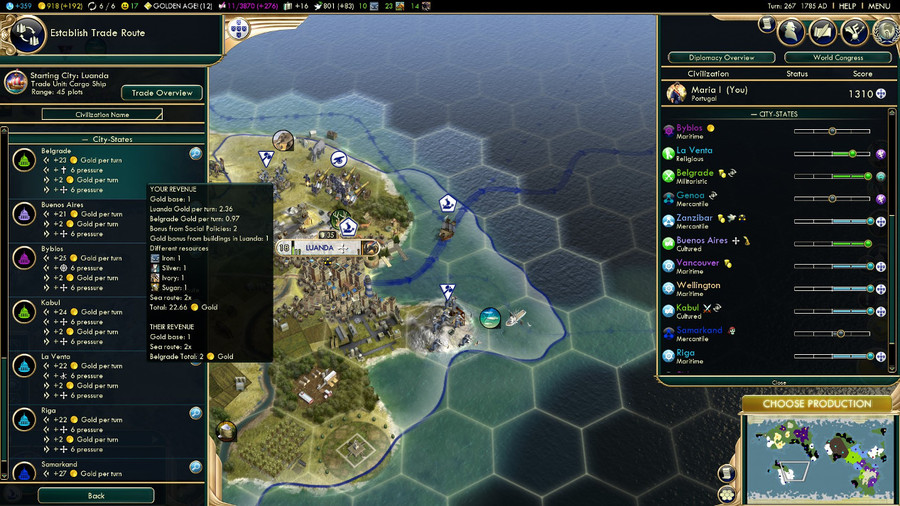
"Yet, in this world there are also bonds worth protecting and treasuring. Everywhere you turn, people are creating art and music, discovering new things about this planet we inhabit, becoming strong, growing older and wiser."
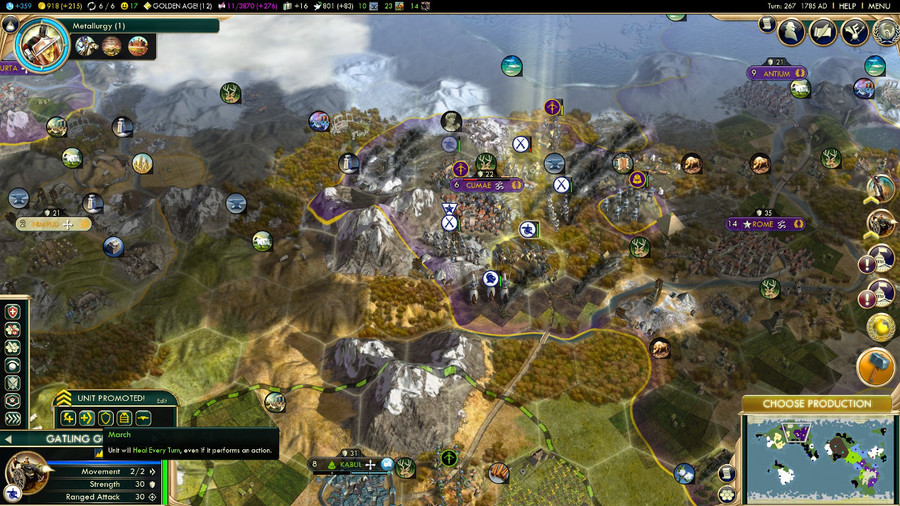
"Our conflicts and wars are transient things, fought to resolve worthy disputes, yes, but they do not fashion the character of our world."
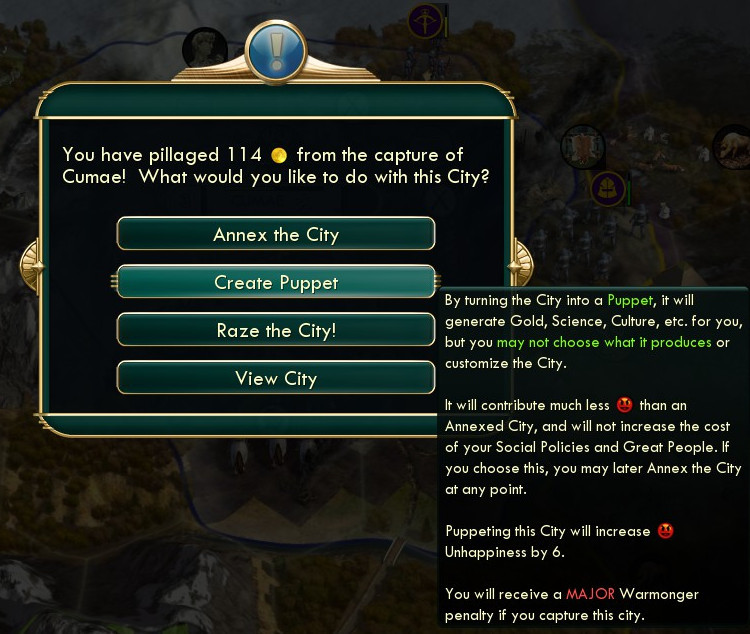
"Our world is one where people deserve to be free, no matter who lays claim to a border, or manages a city."

"It is in the spirit of cooperation that we grow greater every day. This ability to cooperate is what makes us truly worthy of this great gift that we call life."

One of the Japanese ambassadors suddenly receives a message from a black-clad man who slips into the building, and both men suddenly leave in a great hurry.
"It is in the spirit of this cooperation that I hope to invite those among us who do not claim to be among the empires of this world to find your voice in this assembly."
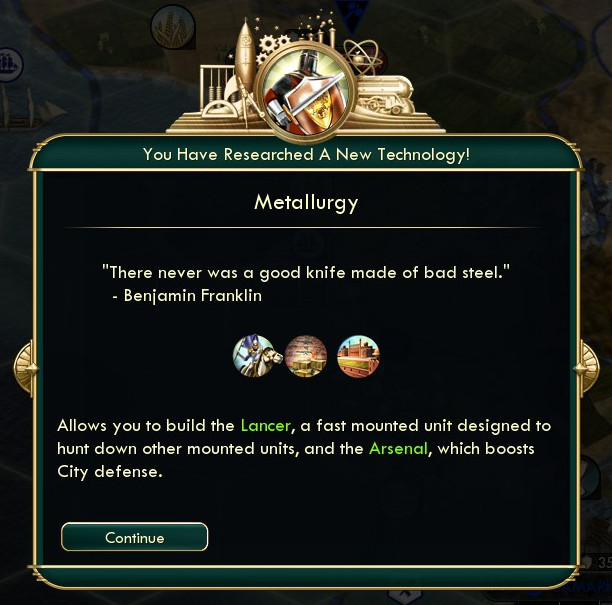
"It is within your power to make changes to this world, as a free populace who claim allegiance only to your histories, ideals, and cultures."
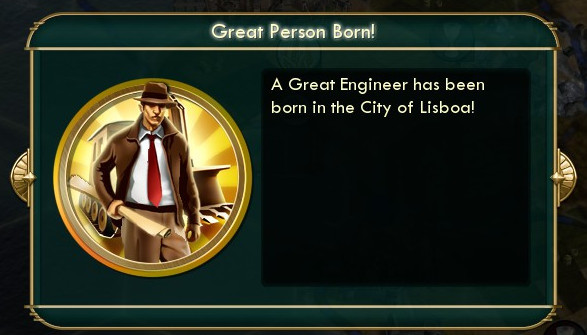
"In this, I see that you are all just as worthy as any of us here to find a place at this assembly, and I hope that when next we meet, you will consider joining us in determining the fate of the nations assembled here."
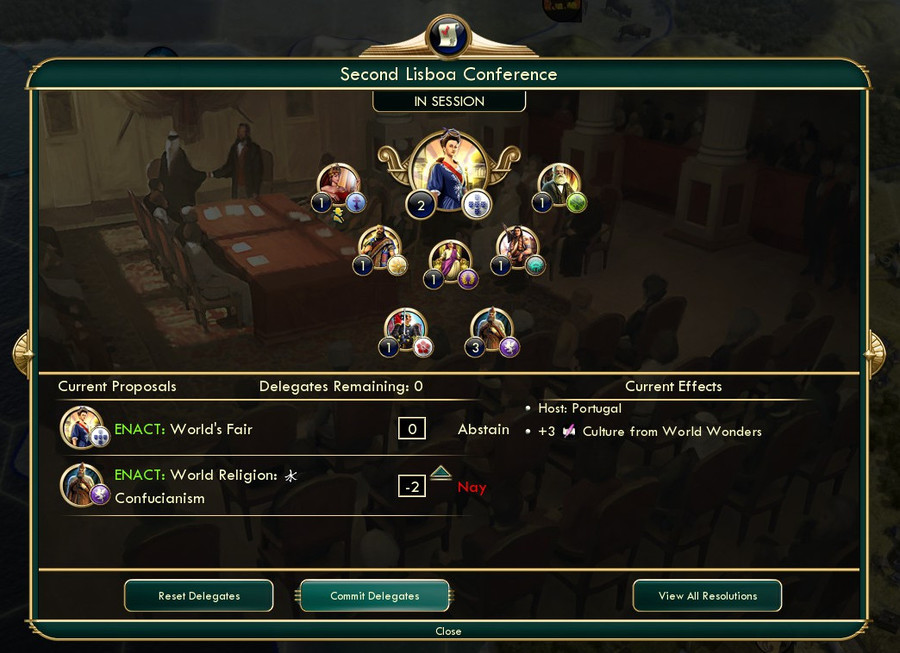
A brief burst of applause, followed by a hurried scribbling of pens on paper.

João de Almeida approached the President cautiously, informing her that some progress was forthcoming on the military research branch of the Universidade de Lisboa.
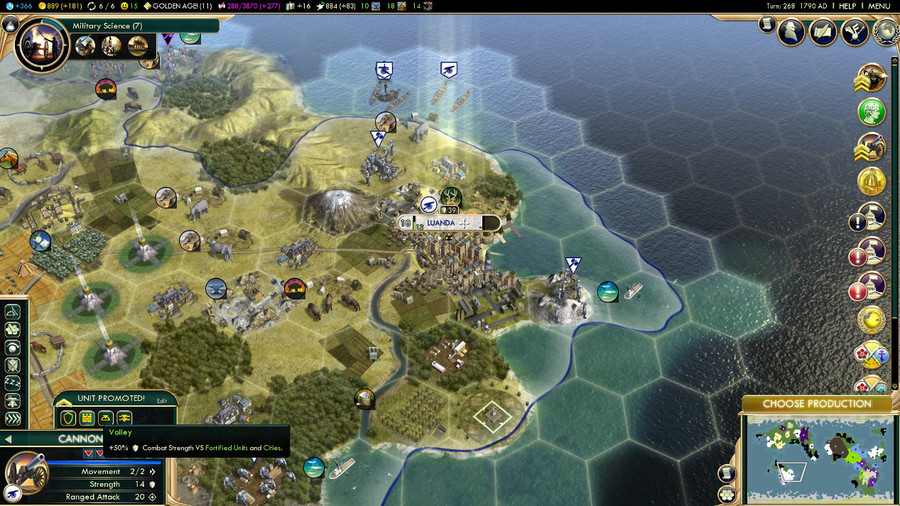
Further reinforcements were preparing to move out, but these had a different destination.
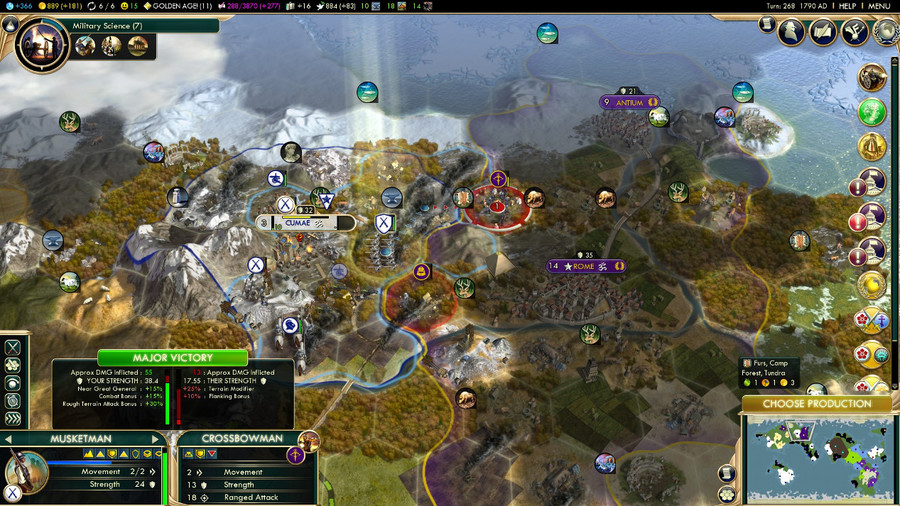
Using Cumae as a staging area for their next assault made the second Portuguese push into Roman territory considerably easier.
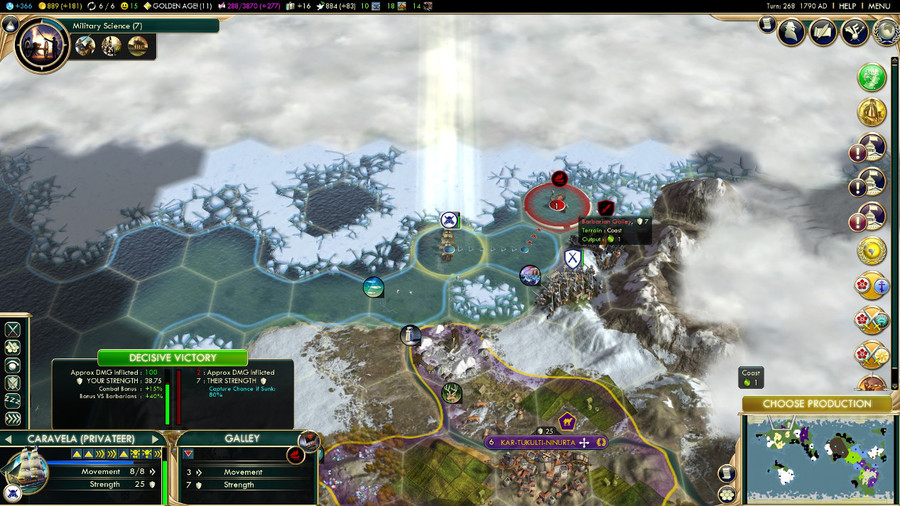
Even a damaged Caravela is more than enough to handle ancient fossils unsheathed from the ice.
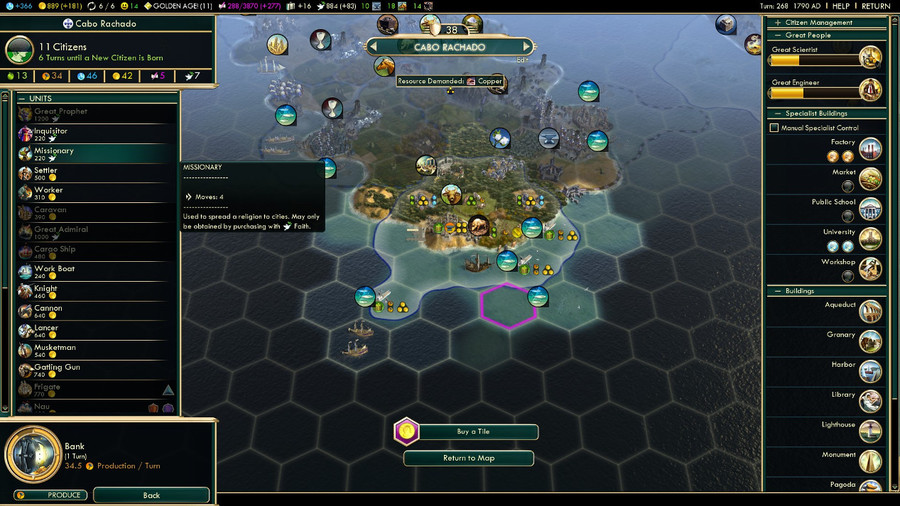
The grandeur of Cabo Rachado makes itself known though its familiarizes with modern Sebastianism, and its subsequent offer to support Ceuta with these knowledges.
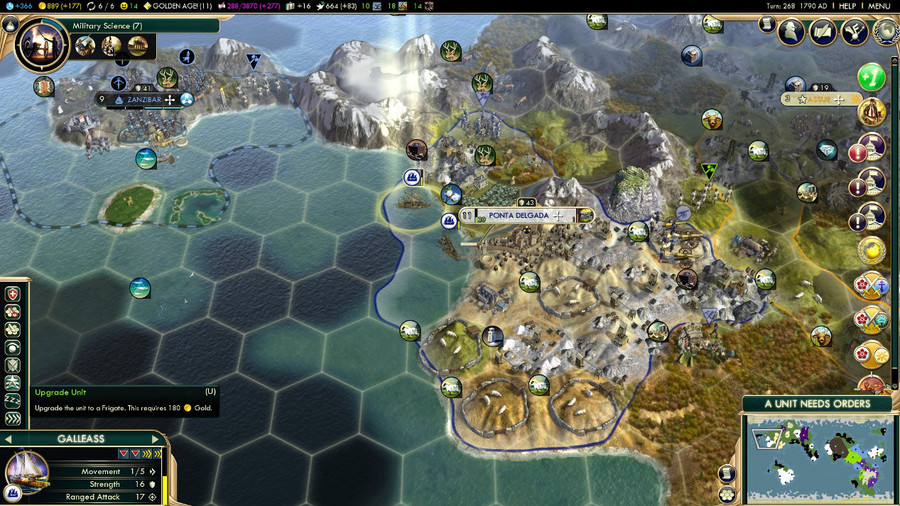
In Portugal, any old dog can learn new tricks, it seems.
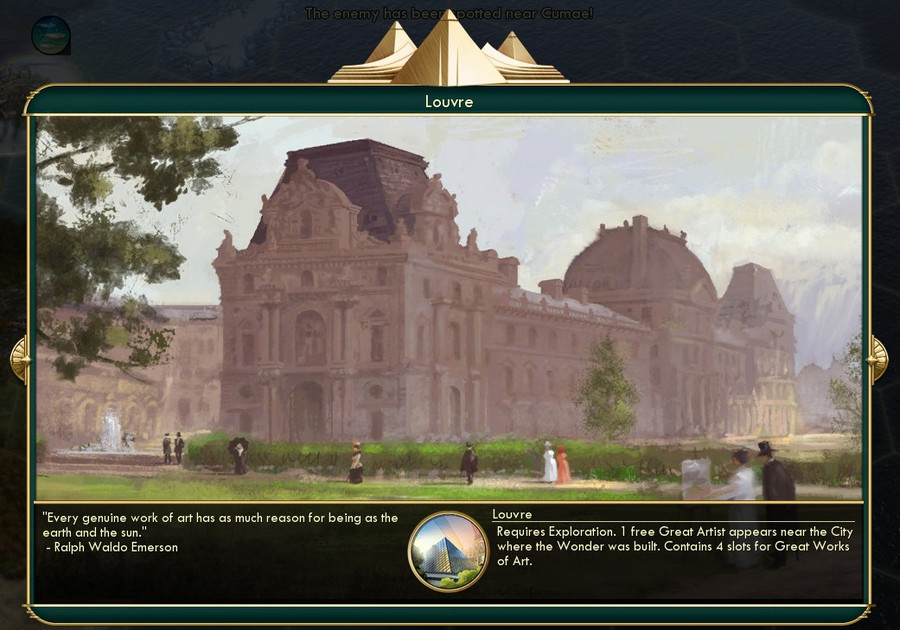
The old is revitalized when seen in just the right way. Perhaps this idea lies at the heart of the popularity of Fado.
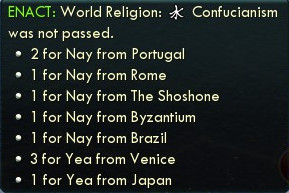

The President's speech is also one that makes waves in the international community, and makes those gathered wonder about a new direction that the Assembly may take when next it convenes.
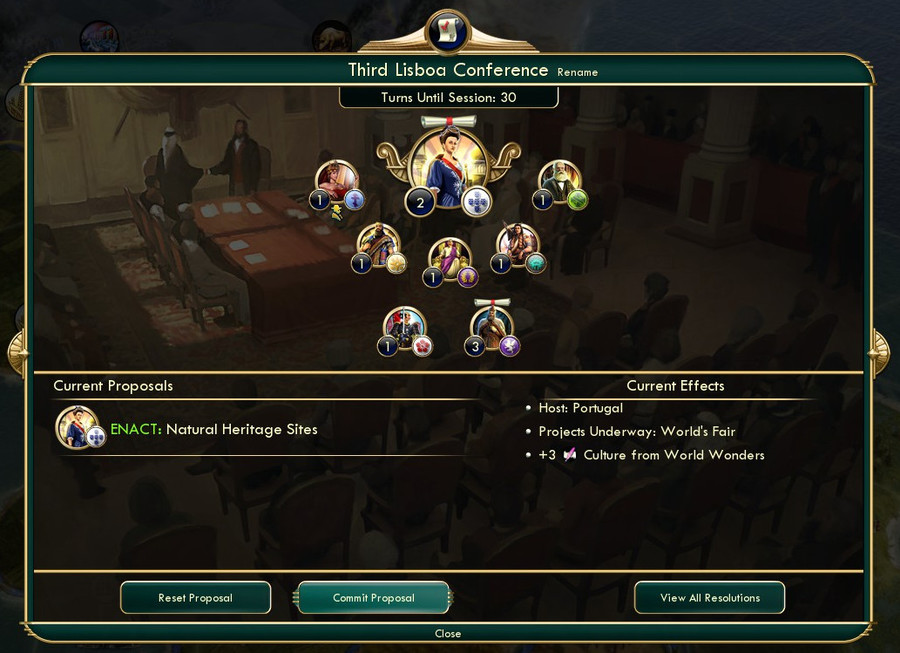
The speech is also one that inspires a sort of common thinking between the Portuguese and those they would consider friends. The idea that people ought to be free to make whatever allegiances they so choose is one that gains considerable traction among the citizenry desiring lives in Lisboa. A famous expression spreads through the mainland as a result:
"Somos todos Portugueses."
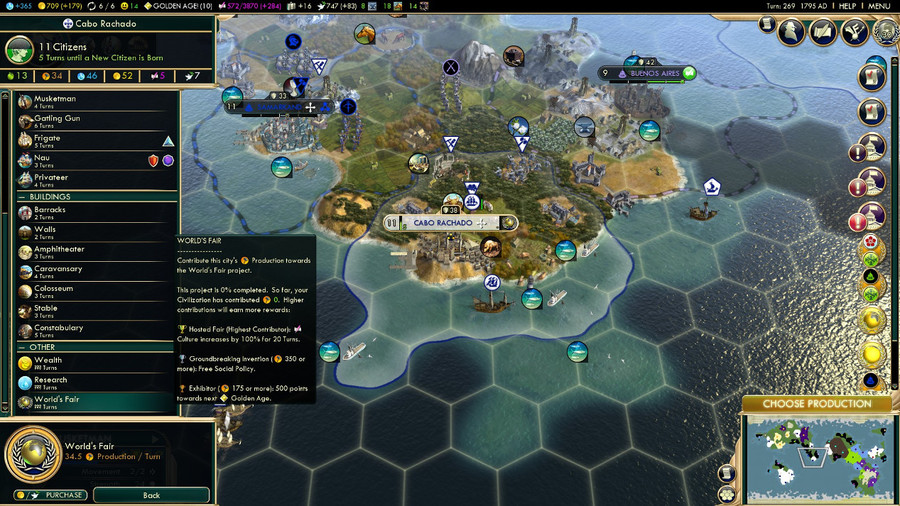
This enthusiasm manifests itself in a desire to demonstrate to the world the ingenuity of Portuguese thinkers and performers in a greater forum.
The World's Fair is one of a small number of building projects that cities from all Civs can work on. The project has three target thresholds, visualized as Gold, Silver, and Bronze, which each provide certain benefits to Civs that contribute a certain amount of Production to the project. In all cases, Gold only goes to the single largest contributor, while Silver and Bronze go to all participants who meet certain target contributions.
We are, of course, going to dedicate a significant portion of our continent-spanning empire's production to this project, in the hopes of cinching Gold.
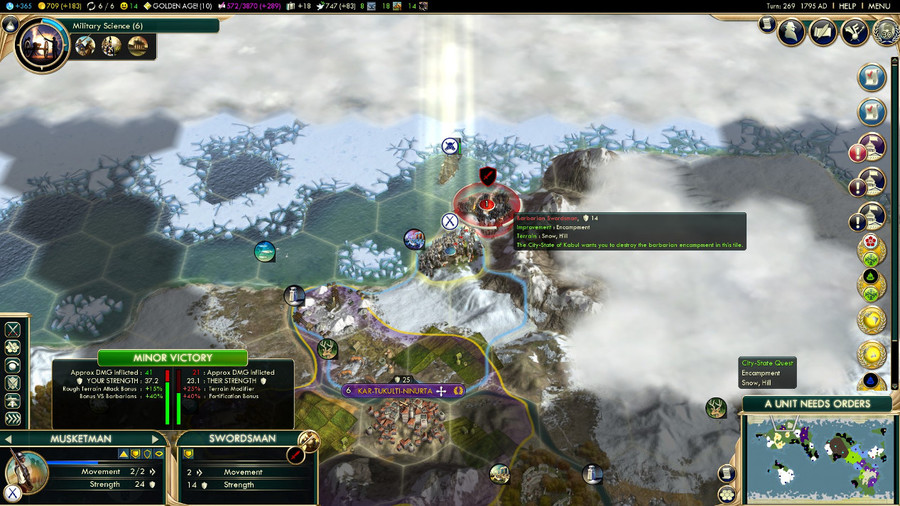
The time to strike the North has come at last. The sooner peace returns to Assyria and Rome, the sooner all can enjoy the benefits of the world.
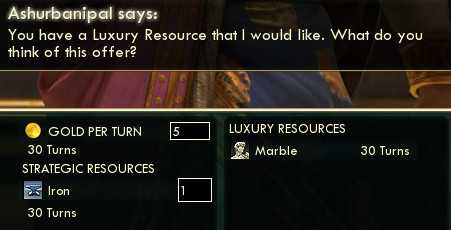
Once again, the Assyrians are savvier traders than most.

The President uncovers some shocking information from her contacts abroad. The Roman's attempts at passive aggression fall to the arrows of Oriana once more.

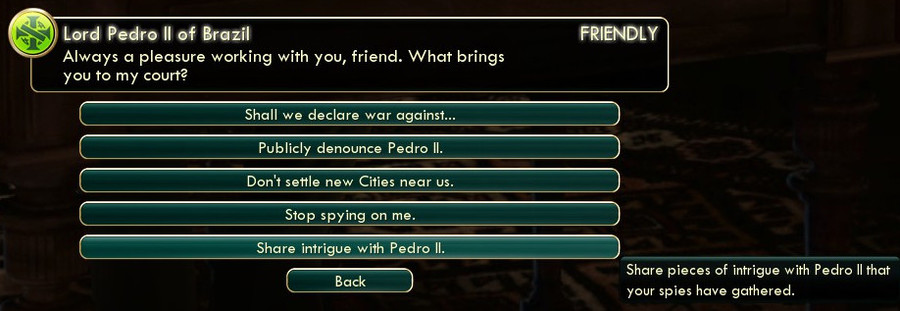
What is considerably more disturbing is the notion that Constantinople's recapture has gone to Theodora's head, and she may be planning military conquests against what should be a common ally. The President, with some dismay, informs Eliana to dispatch a message to Pedro, that they may try to resolve disagreements openly.
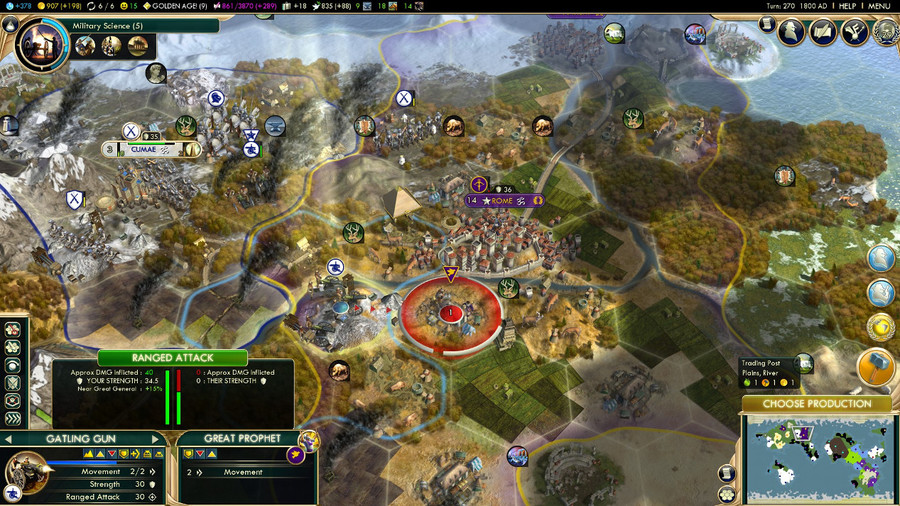
A strange situation arises at the Roman front, as a civilian wanders into the fire line and is captured by the Portuguese. Almeida is dispatched to see what has happened, and finds a Hindu priest of some renown there waiting for him.
The two of them speak for some time.

Apparently, he had been convinced to defect to the Portuguese side, which earned some diplomatic capital with Zanzibar.
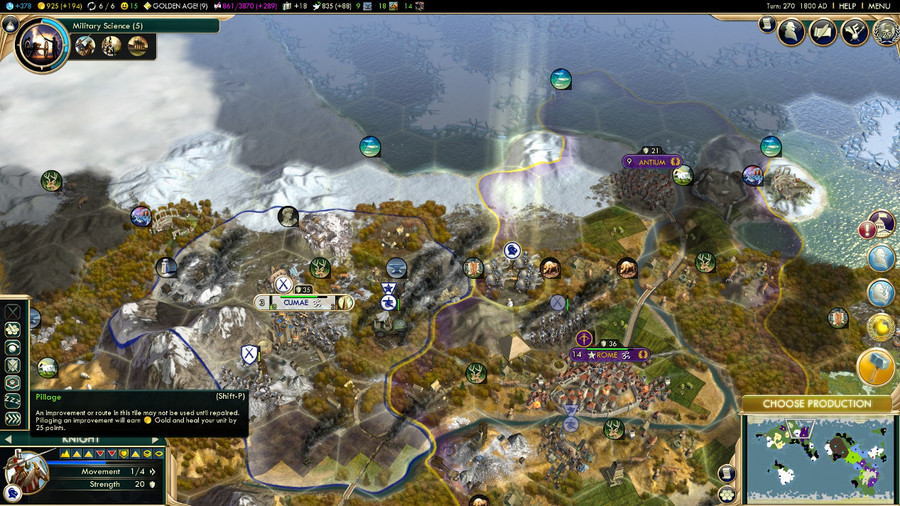
The Knights deal more infrastructure damage to the Romans in the hopes of slowing their military's advance.
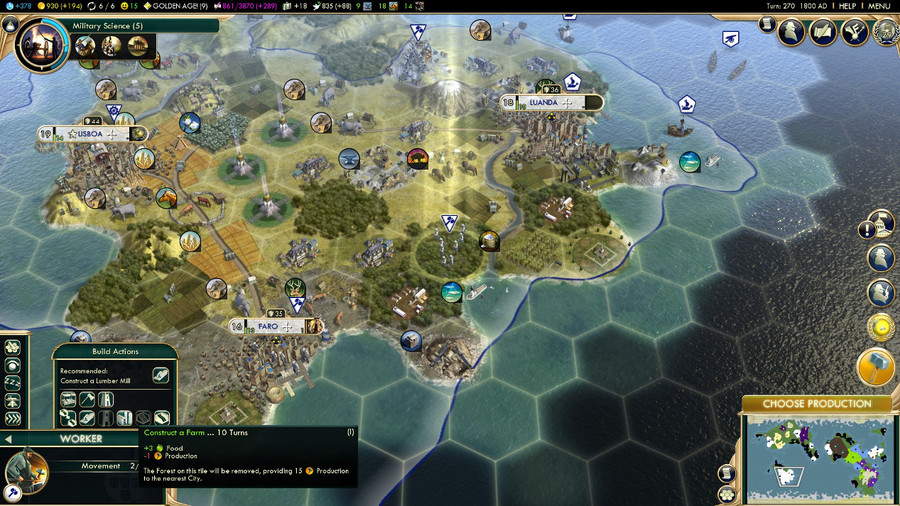
Back home, the infrastructure only becomes more intense.
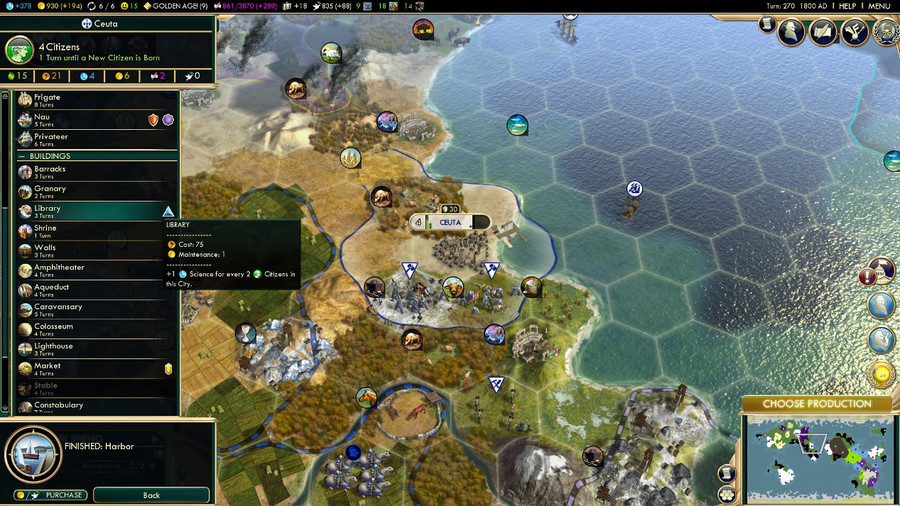
Ceuta continues to enjoy similar expedient advancements.

The Shoshone, however, will enjoy very little.
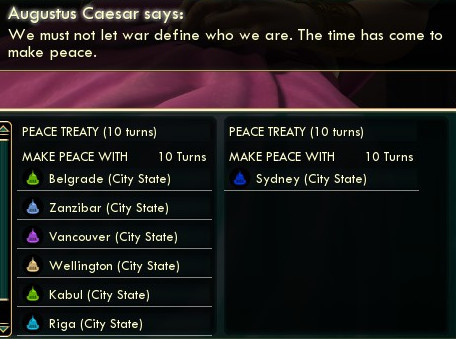
Nor will Romans, for that matter.

Pocatello, despite his ignorance of the historical value of what he has lost, sees fit to demand desistance from the Portuguese, but is rebuked.
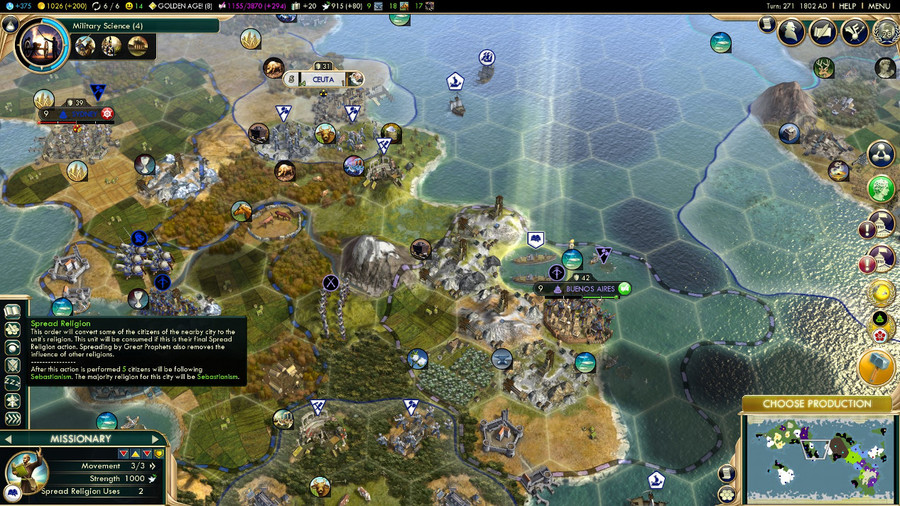
Argentina offers the new missionaries a chance to cut their teeth.
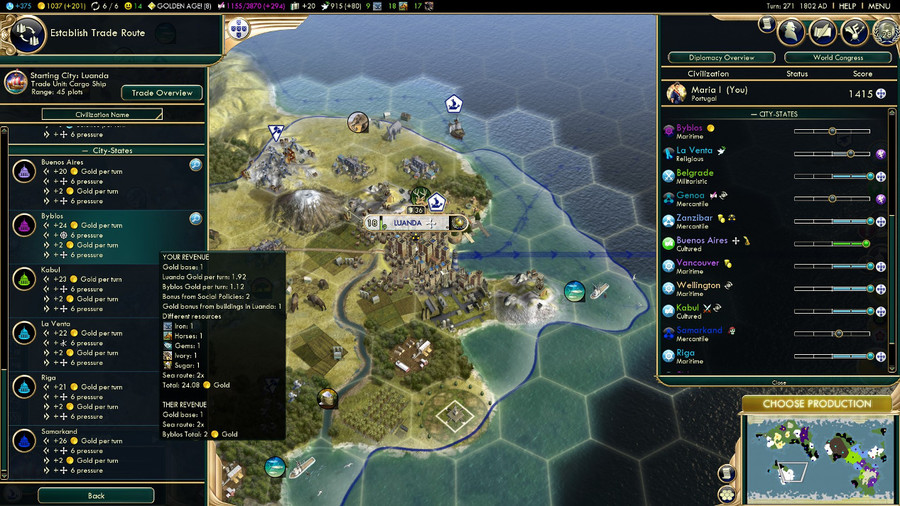
The Shoshone, meanwhile, have apparently demanded tributes from Byblos, despite earlier claiming to by the protectors of the City-State.
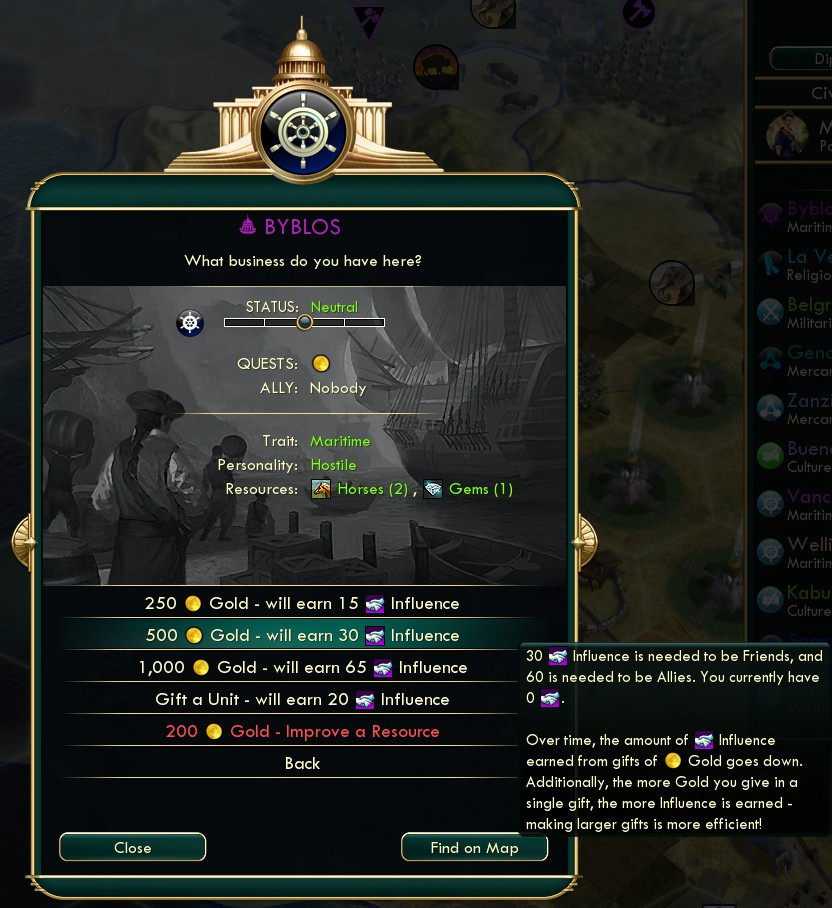
President Bragança thus sees fit to both provide protection and hopefully recompense for past misdeeds.

Conflicts in the North begin turning in favour of the Portuguese, thanks to the arrival of the Nossa Senhora.
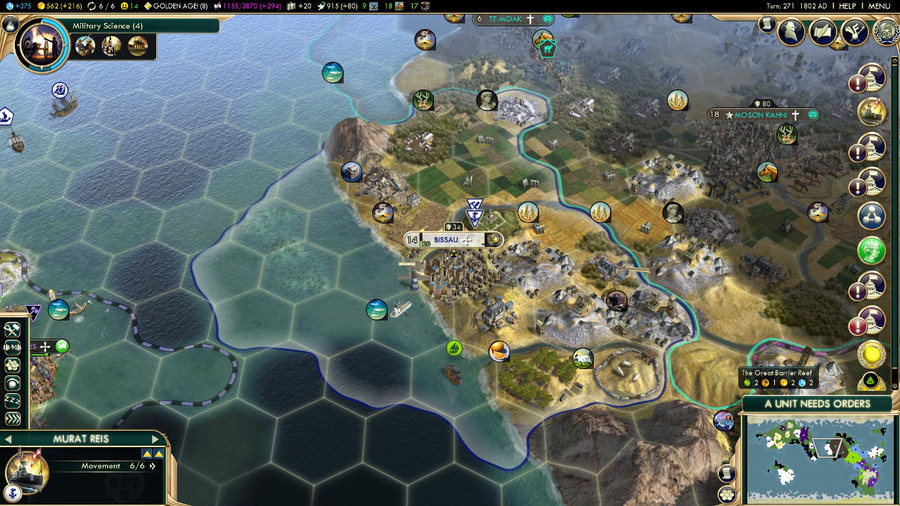
The exploits of the Portuguese naval arm even entice further men of talent to immigrate to Portugal from even former Shoshone territories. Mr. Reis' name is auspicious, but one that draws some curiosity in a land that has renounced monarchy.
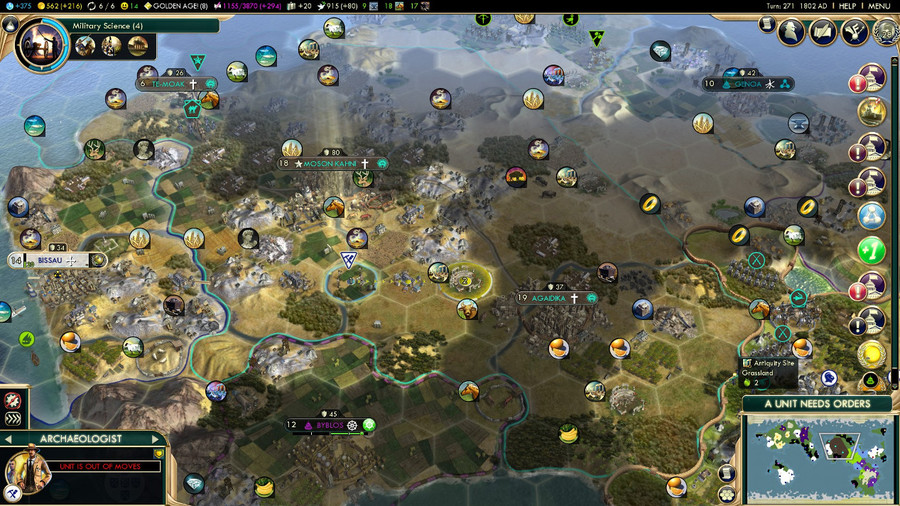
The pursuit of history once again trumps the pursuit of diplomacy.
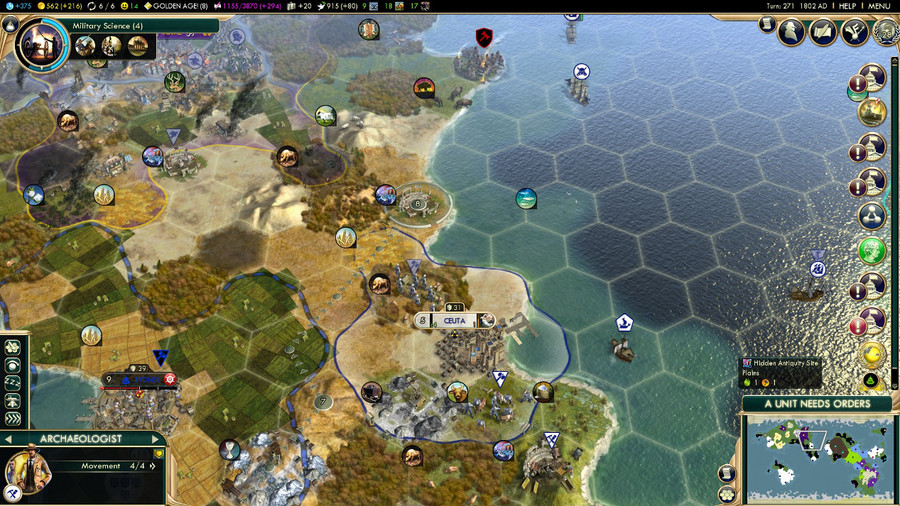
Even a purported military outpost can enjoy the recognition of historians.

In these trying times, another re-affirmation of friendship is always welcome.

Even if it cannot carry quite the same hopeful undertone as it did before.
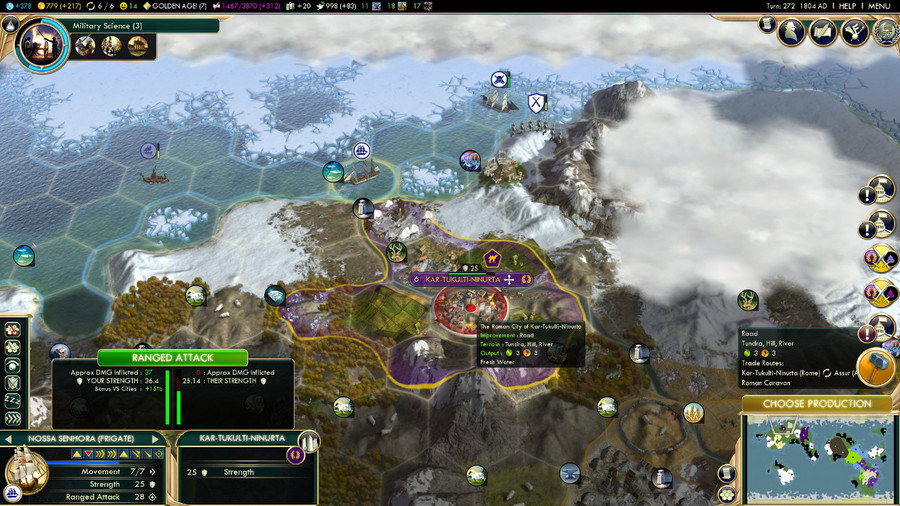
Nossa Senhora has developed an understanding of proper rangefinding, and is able to effectively bombard Kar-Tukulti-Ninurta from outside the city's own effective range.
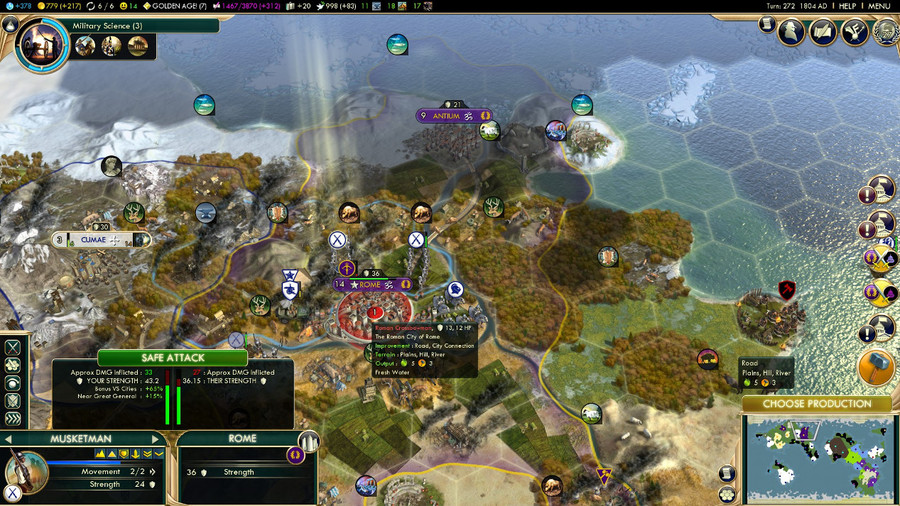
This success is followed closely by the near-completion of the encirclement of the Roman capital.
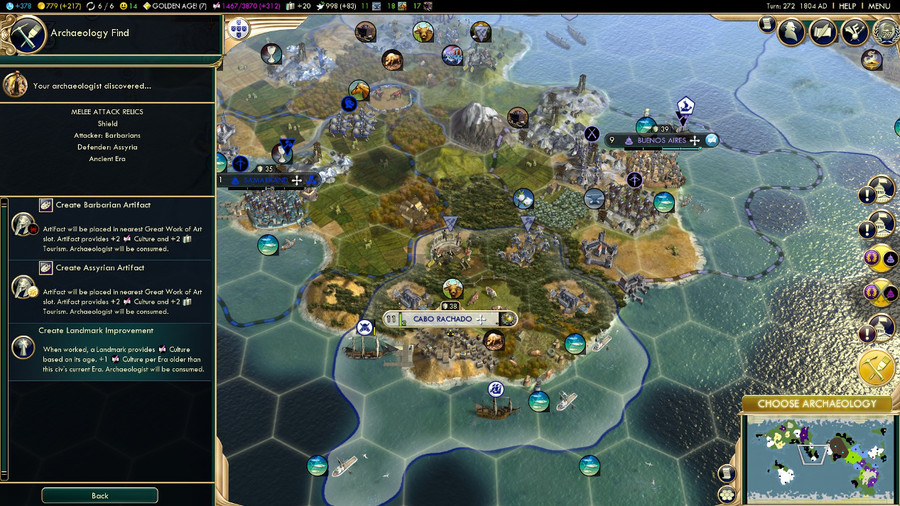
Citizens in Cabo Rachado are surprised to learn about the history of the land that predated their arrival.

Byzantium, meanwhile, becomes increasingly difficult to negotiate with.
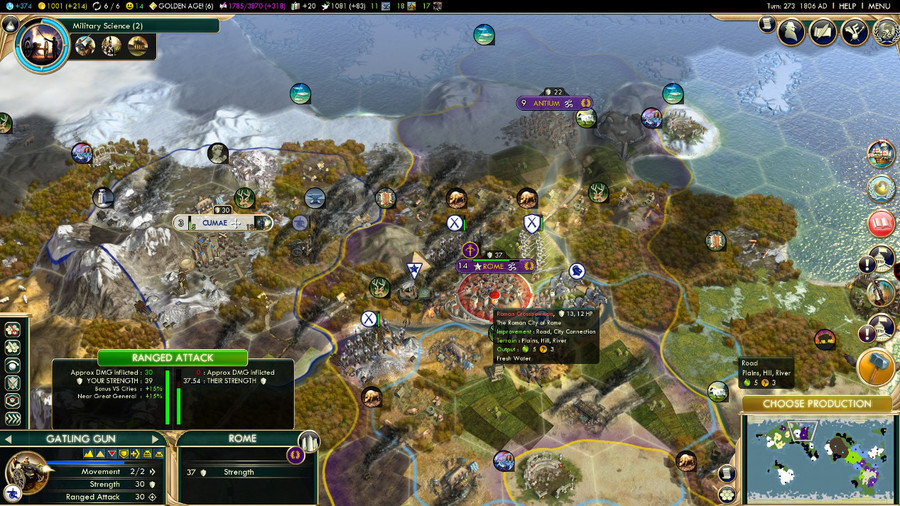
Roman defences are slow to fall, but fall they must.
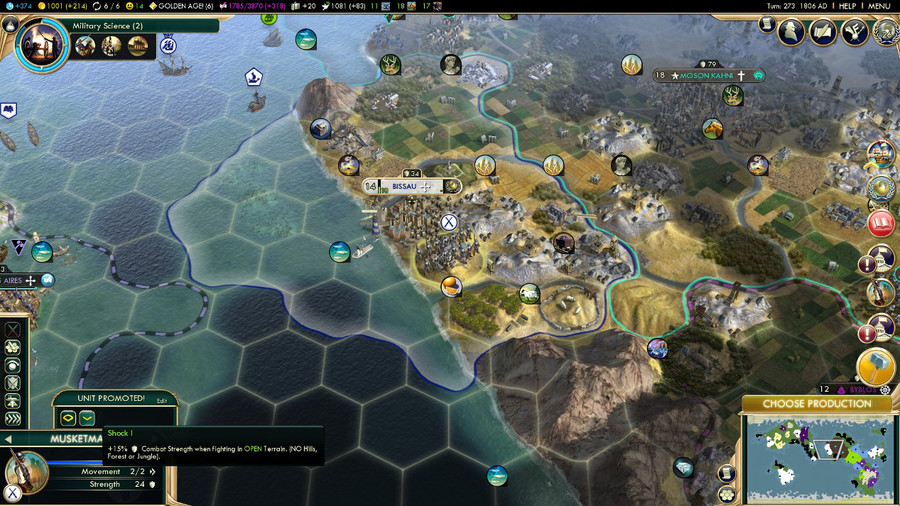
These efforts are supported by friends abroad, who form volunteer forces to better assist the Portuguese.
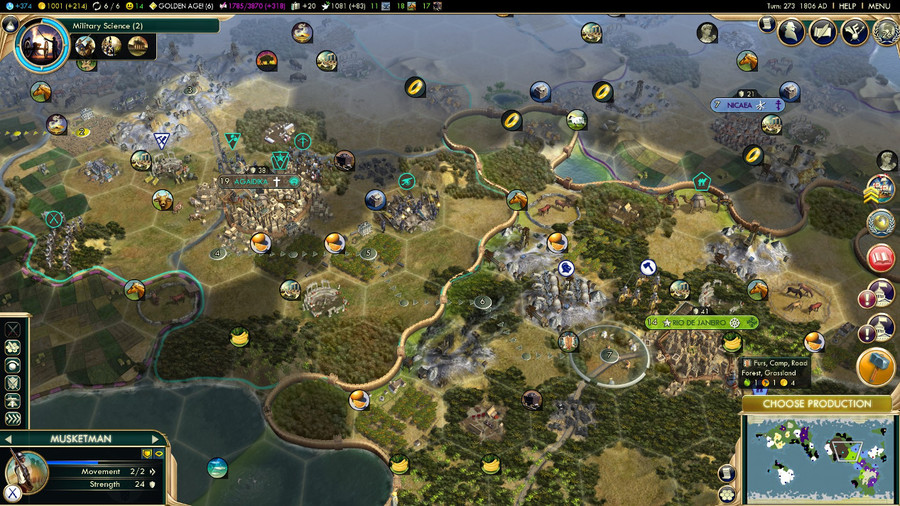
Their efforts, however, are better spent elsewhere.
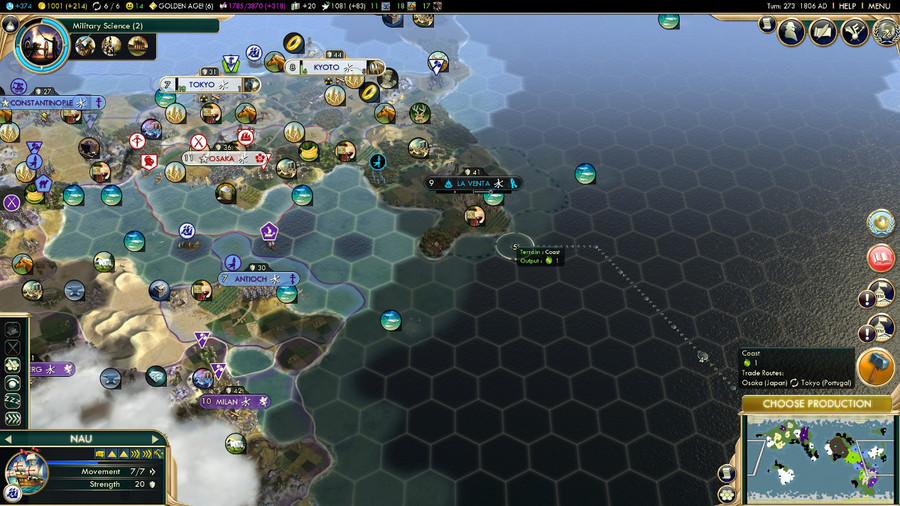
Once again, surplus Nau find a new lease on life as vessels of diplomacy.
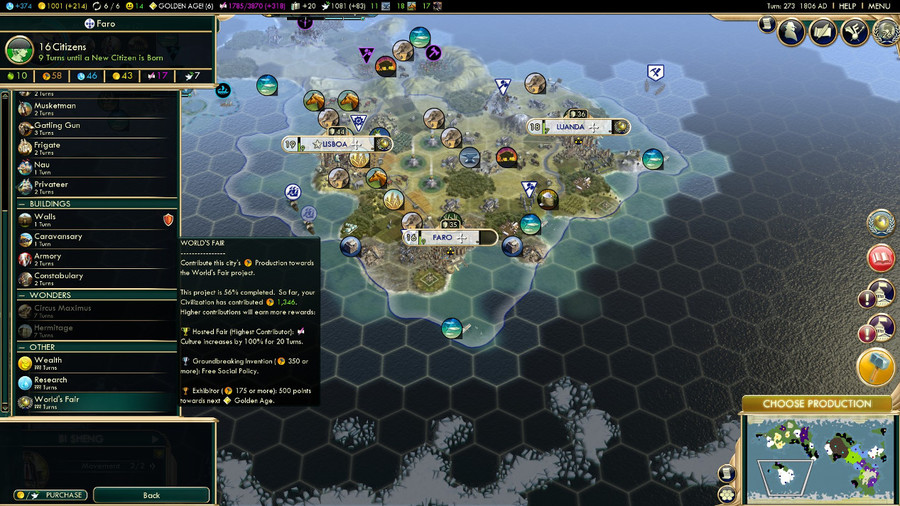
The anticipation of a grand World's Fair electrifies the Portuguese mainland.
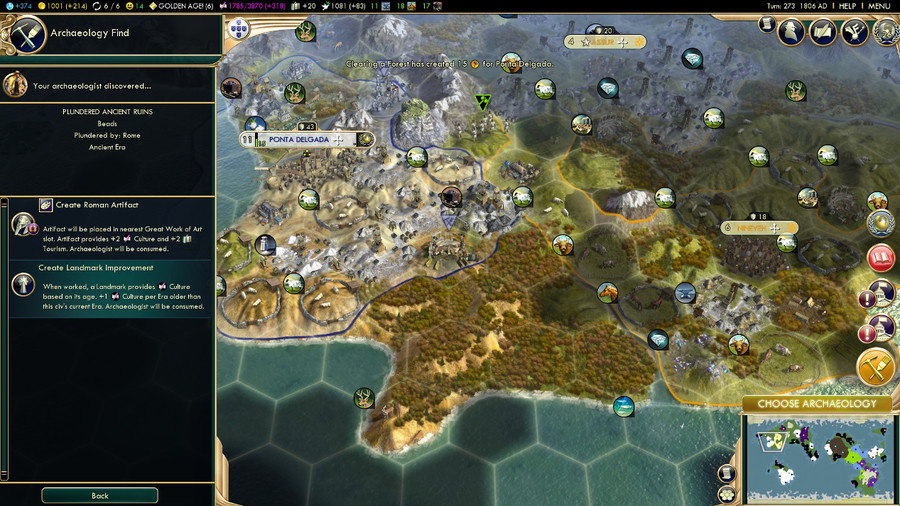
Every city seeks to look their best.
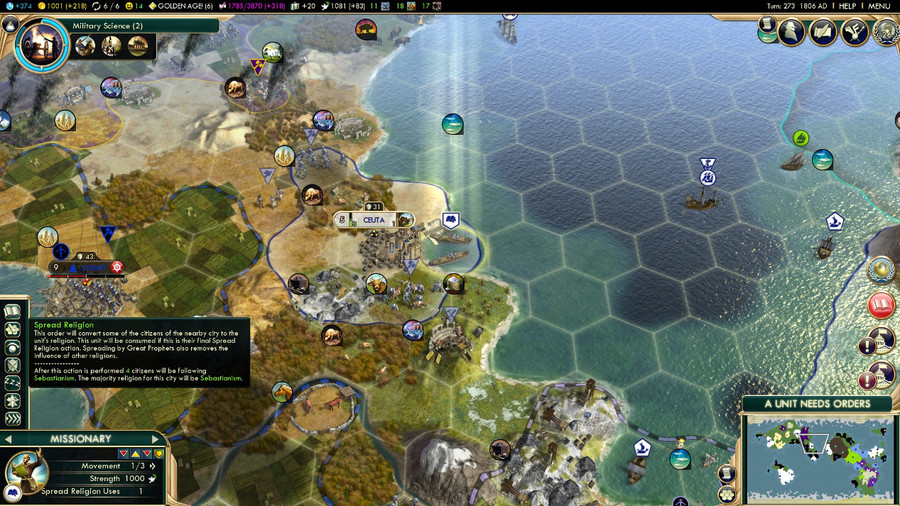
Sebastianism flourishes in Ceuta, bringing with it a renewed focus on learning and the growth of the mind and coffer.
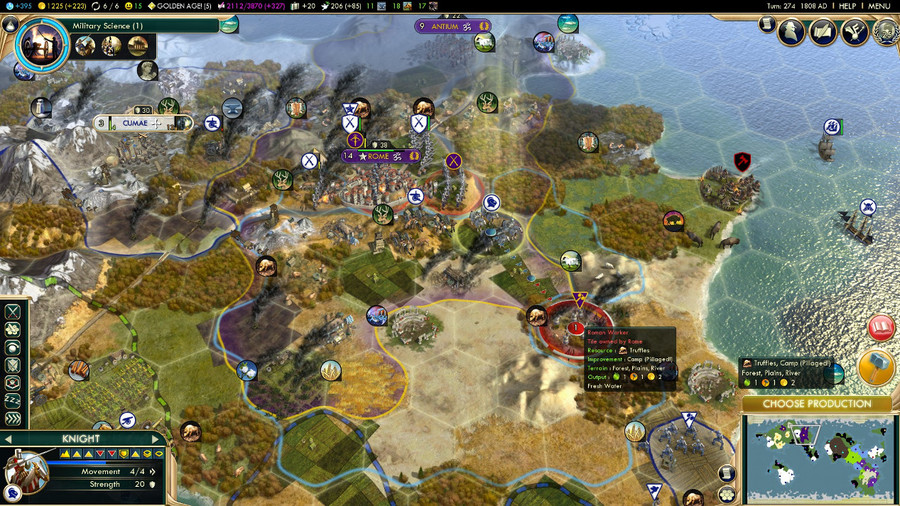
Really, the Knights are doing well by their Roman captives, offering them new lives in Portugal.
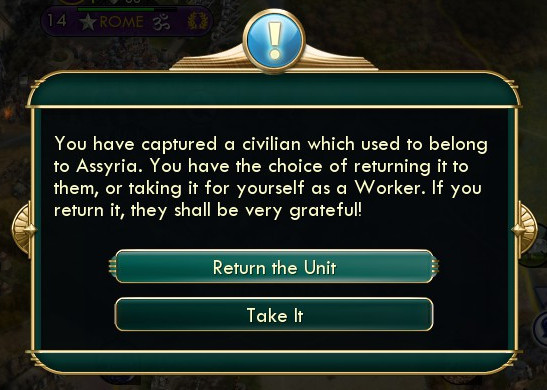
These, however, are only too happy to return home instead.

Diplomacy carries with it some pride in a job well done.
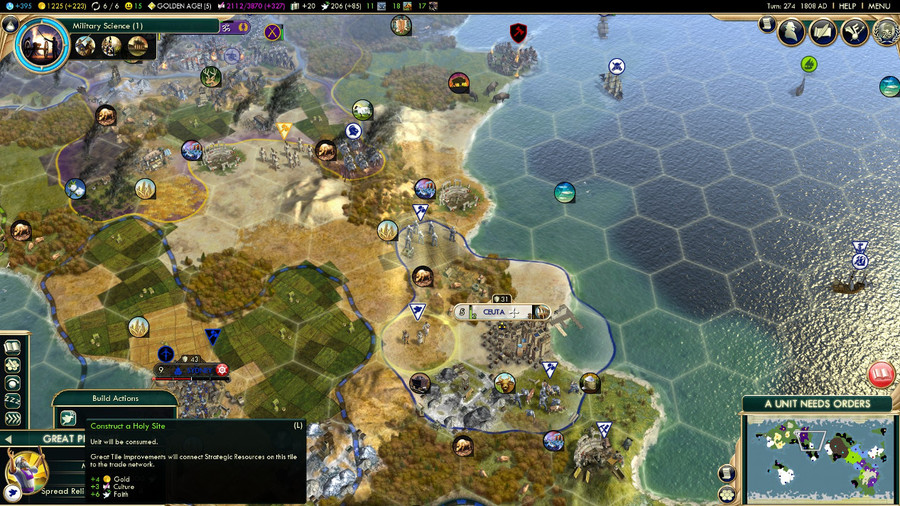
These efforts, and Almeida's impassioned entreaties, convince the Hindu holy man to complete his pilgrimage in Ceuta rather than Roman territory. The land he consecrates brings the city significant international prestige.
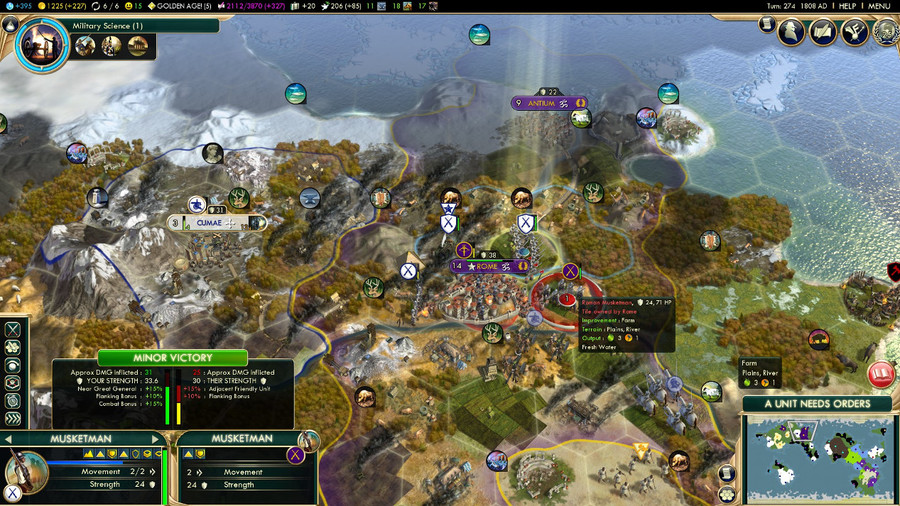
However, the encirclement of the Roman army is weakening.
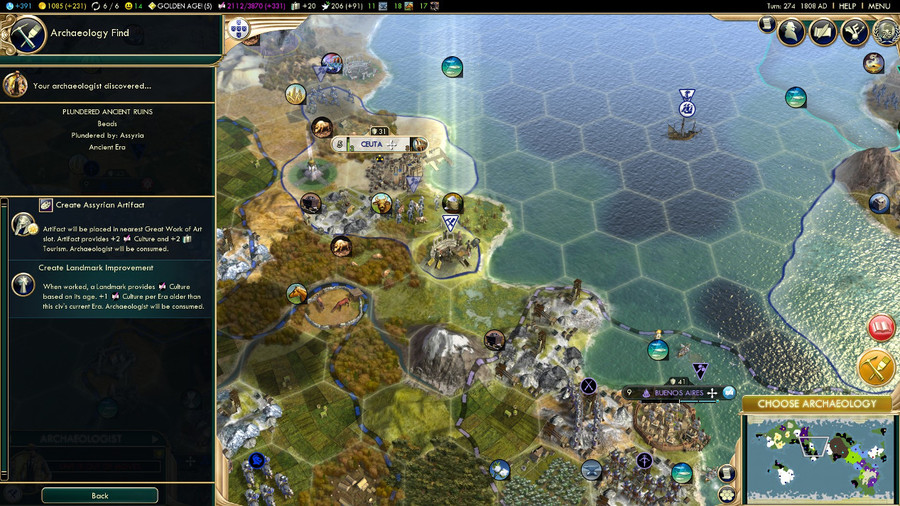
Ceuta, once envisioned as a land of soldiers and sailors, is now a land of priests and historians.
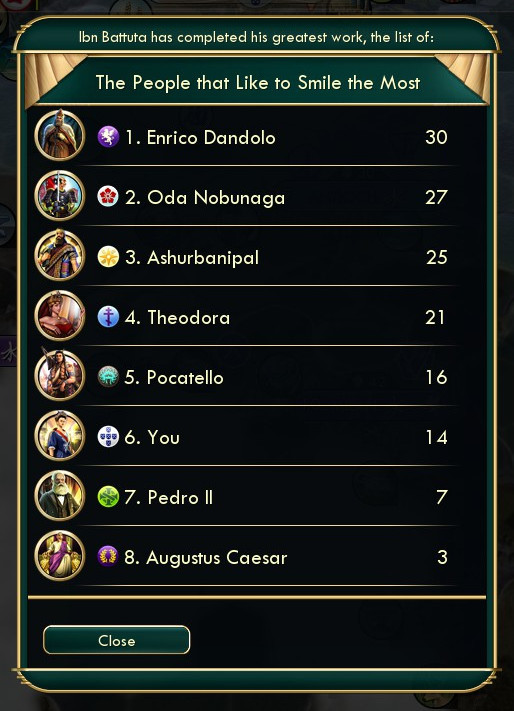
Yet, there is still a sense of unease in times of war, albeit one more for the enemies of Portugal than its allies. Alternatively, Dandolo's countenance suggests that ignorance truly is bliss.
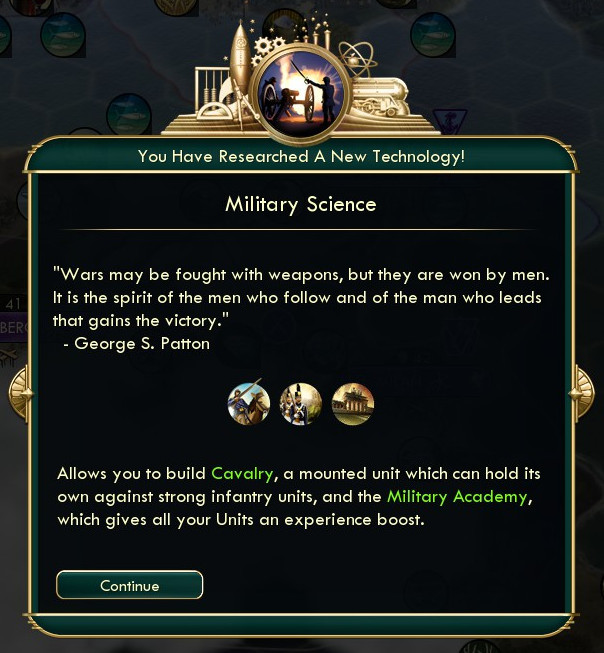
The Portuguese cannot afford ignorance.
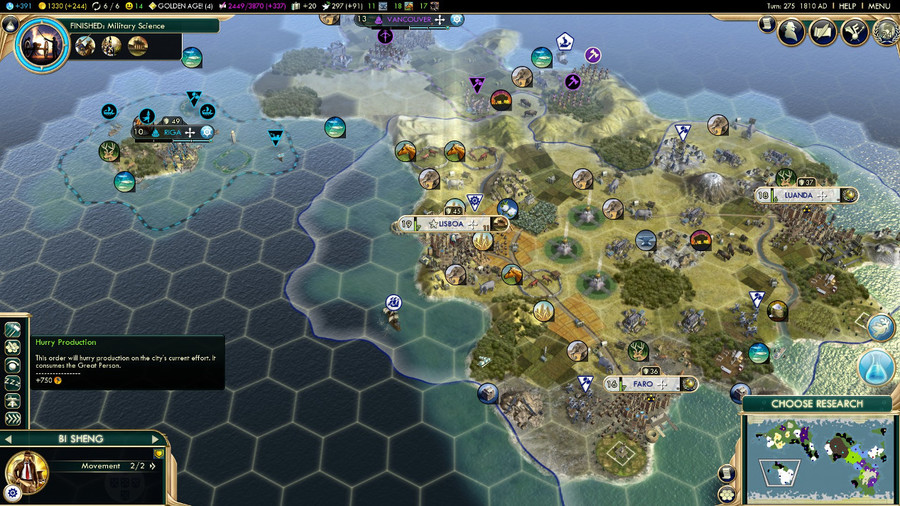
The Universidade completes its wing dedicated to military studies, and a famous architect begins development of a new campus.
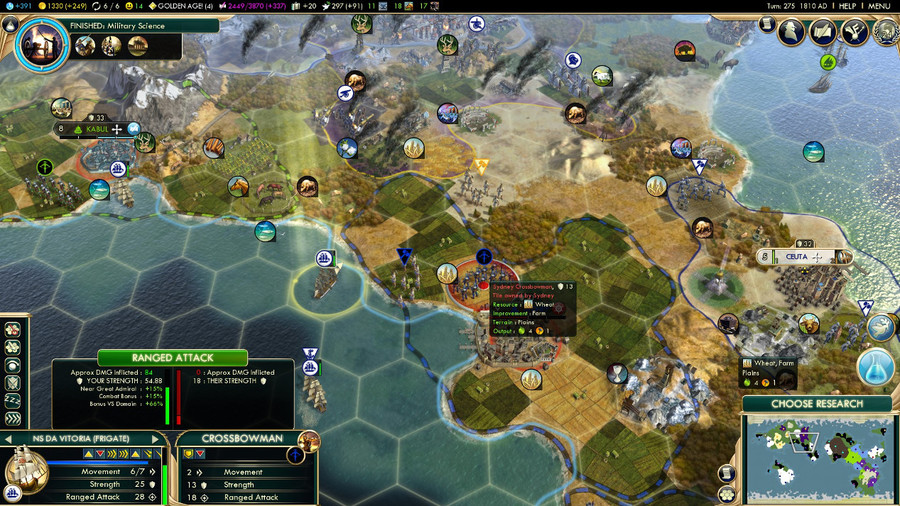
The military arm of Portugal has much to be proud of as well.
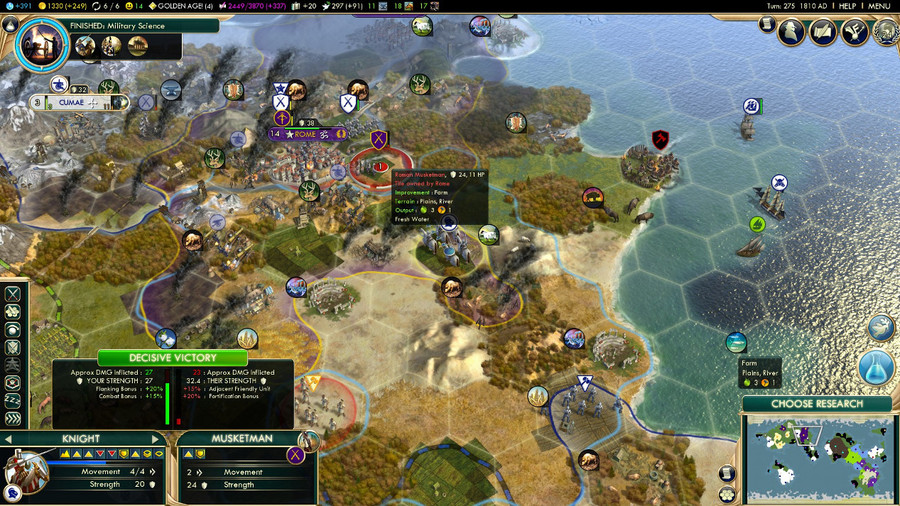
The bravery of its Knights make the political aims of the Portuguese possible.
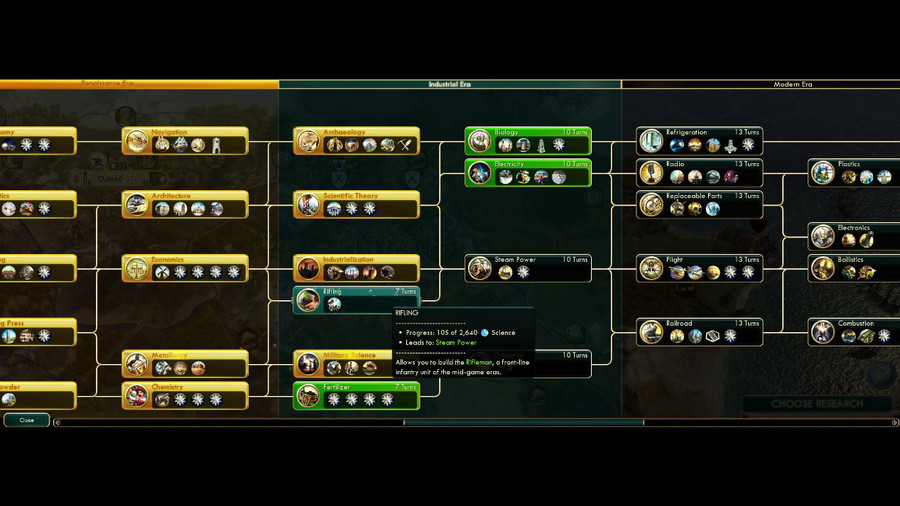
The ingenuity of its scholars ensures Portuguese dominance.
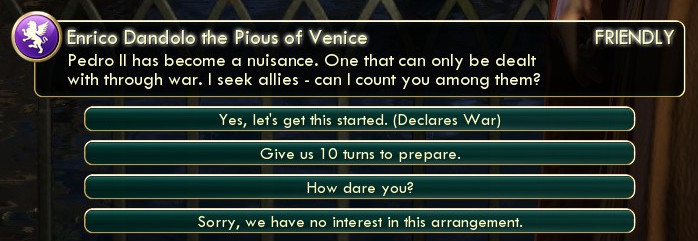
The urge to use it in the face of such threats is overwhelming, but the Portuguese must also temper themselves with patience.

The construction of the new military base at Lisboa marks the beginning of a new age of potential for conquest or peace.
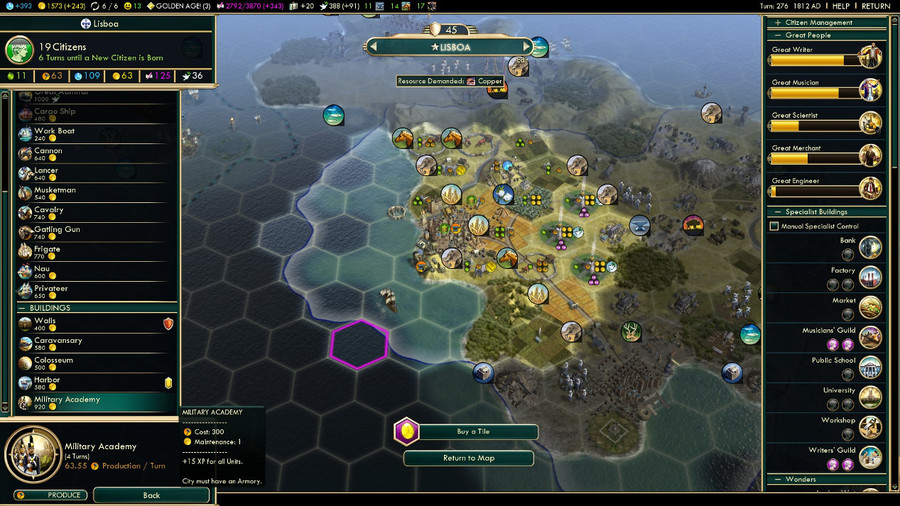
Significant funding is funneled from the Treasury into the military research wing, and new training programs for future defenders of Portuguese Freedom seek to improve the military at every step.

Former enemies of the Shoshone emerge into the fore, in the hopes of securing victory against their foes in the future.
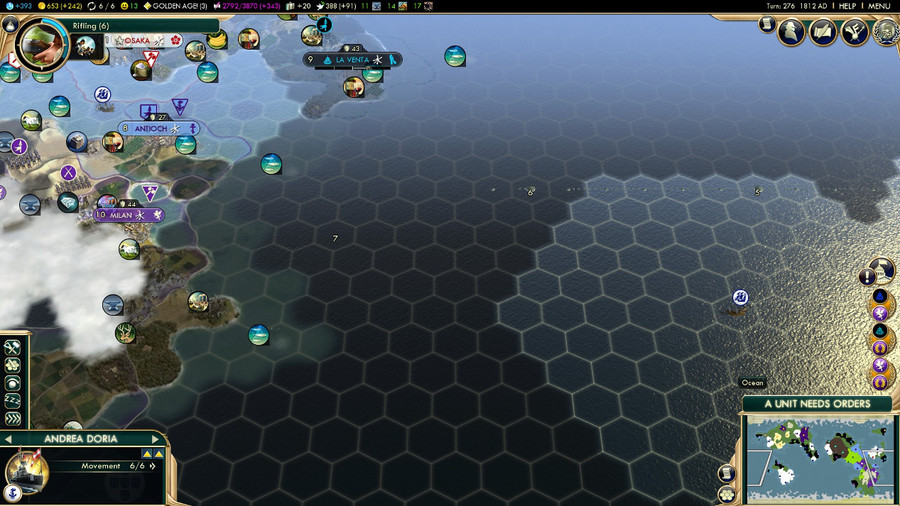
Anticipating the possibility of another conflict at sea, the Genoese mercenary also dispatches quickly to Venetian seas.
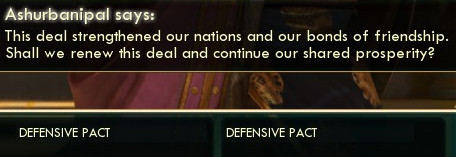
It has been suggested that these Portuguese interventions in the defensive interests of other nations are mere excuses to become embroiled in wars to their own advantage. Though the Portuguese advantage is apparent, the will of the people prevails in these decisions.
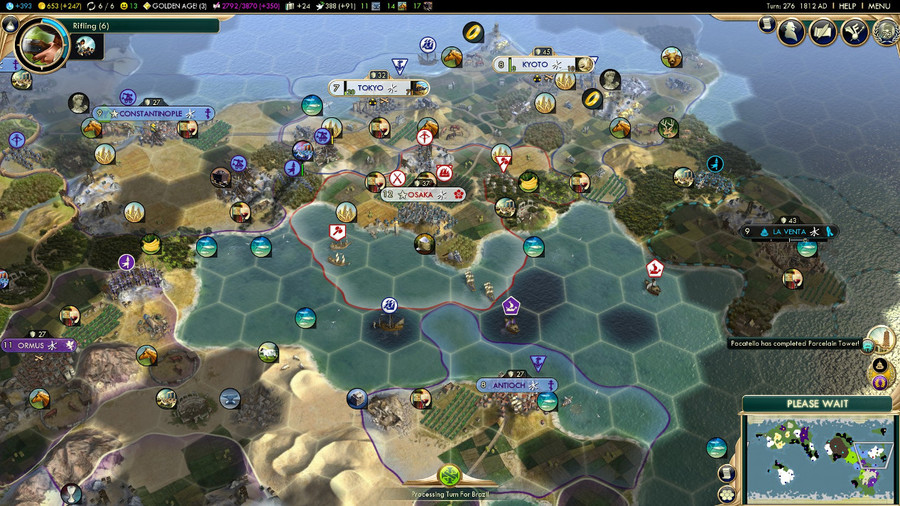
Byzantine-Japanese conflict continues, while the Shoshone discover a passion for learning in other ways.
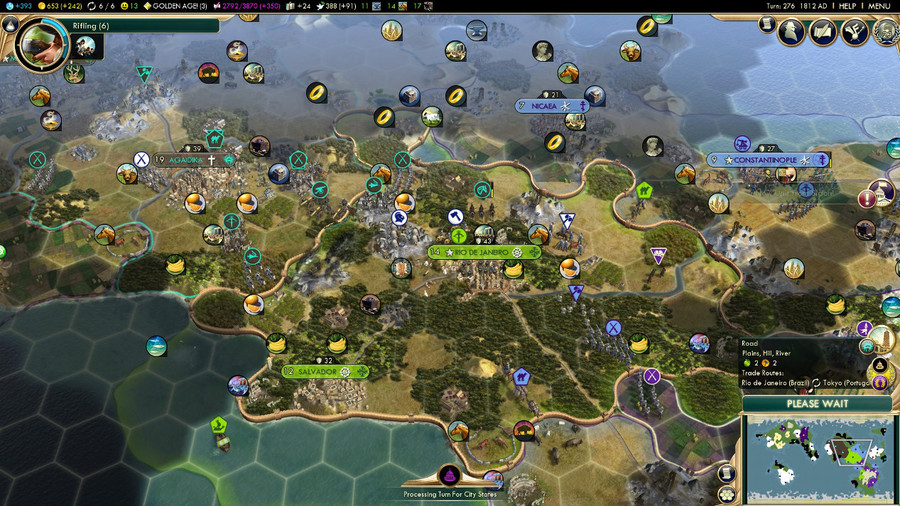
When the time comes for them to march on Brazil, however, the Shoshone find themselves stymied by Portuguese soldiers holding the line.
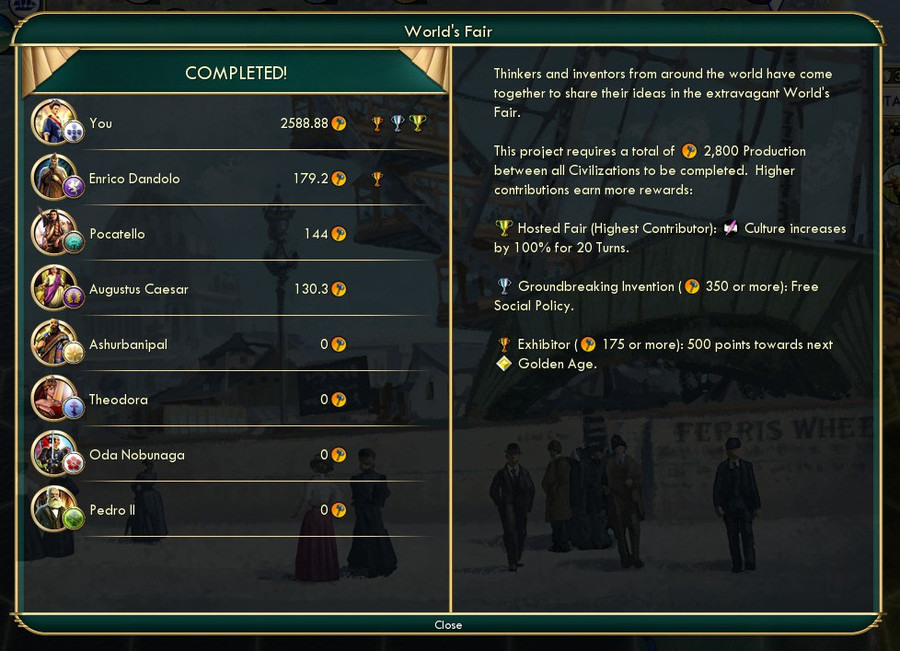
To her astonishment, the President learns that the vast majority of people attending the World's Fair are Portuguese to begin with, and several nations failed to send any sort of representation whatsoever. This only led credence to the popular notion that the Portuguese had truly spread themselves across the world, but caused some disappointment to the President, who only had Dandolo for company at the events she was planning to display for the other world leaders.
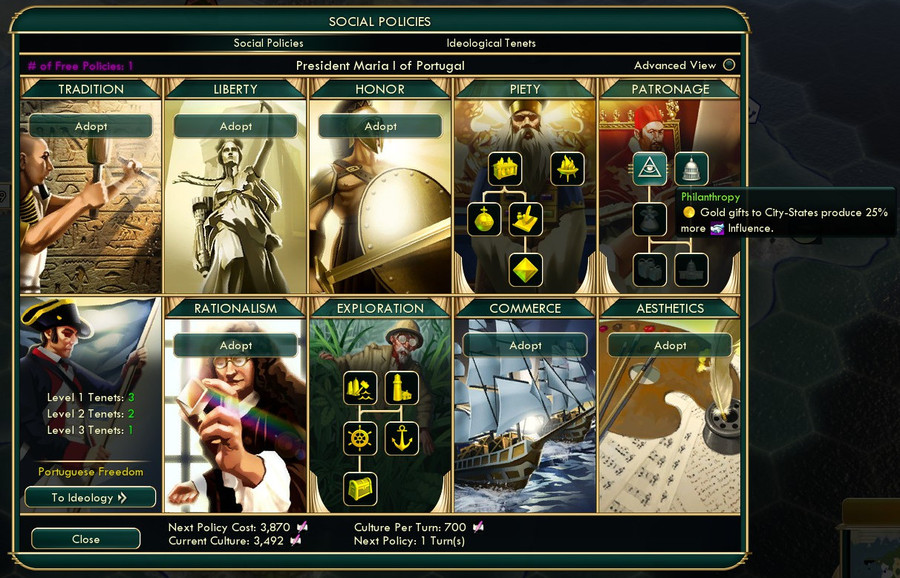
Still, the event carried with it substantial prestige, which she continued to leverage into mastery of diplomacy.
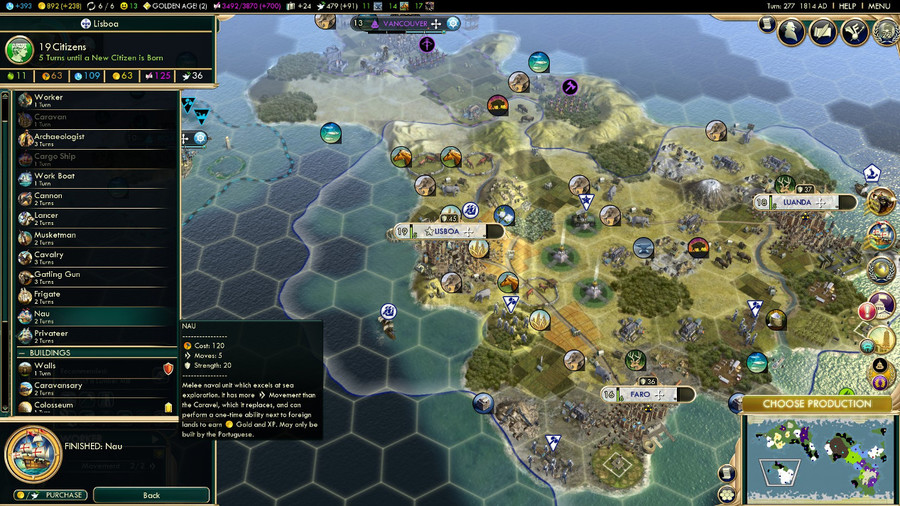
The vessels of trade and warfare the Portuguese once called their own are now called to a different purpose. It is said that their cargo is what holds the world together.
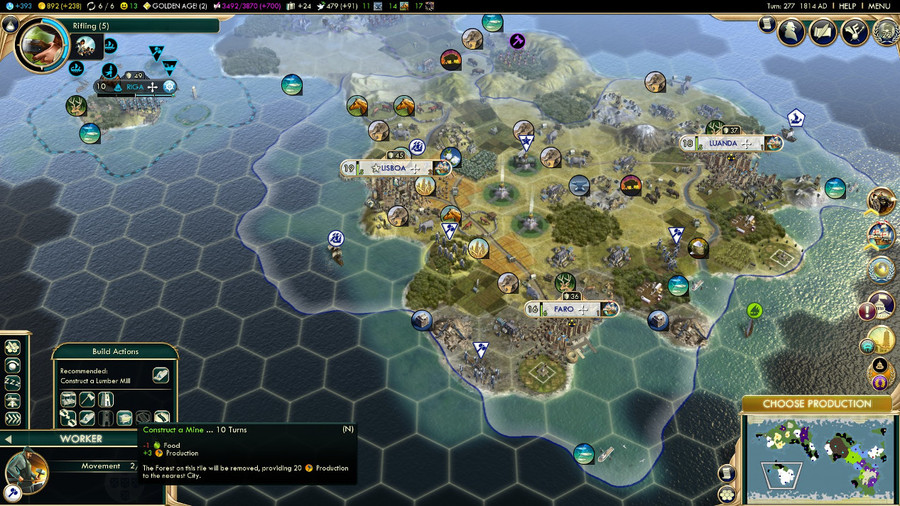
A strange sentiment, considering the enthusiasm with which the Portuguese strip the world asunder in pursuit of reward.
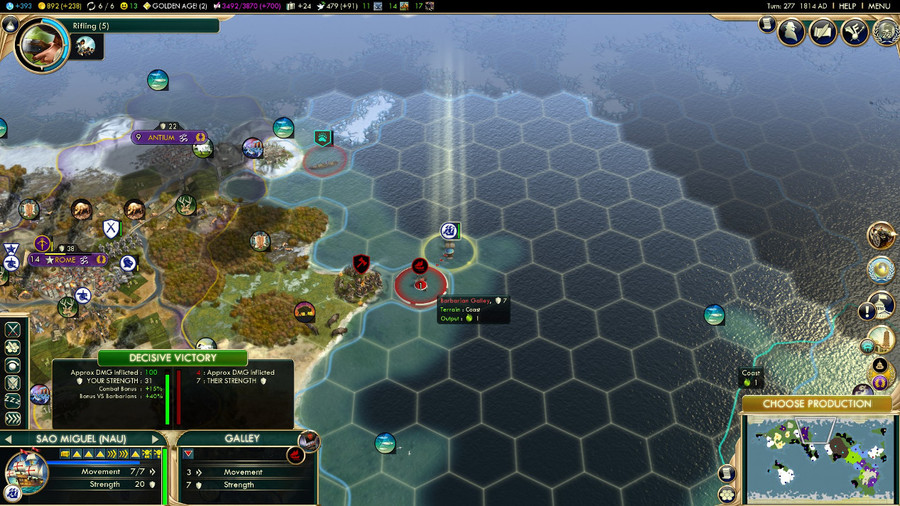
At this point, they have seen enough outdated and outmoded ships to consider adding yet another one to their navy.

The time has finally come to bring the chapter to a close.
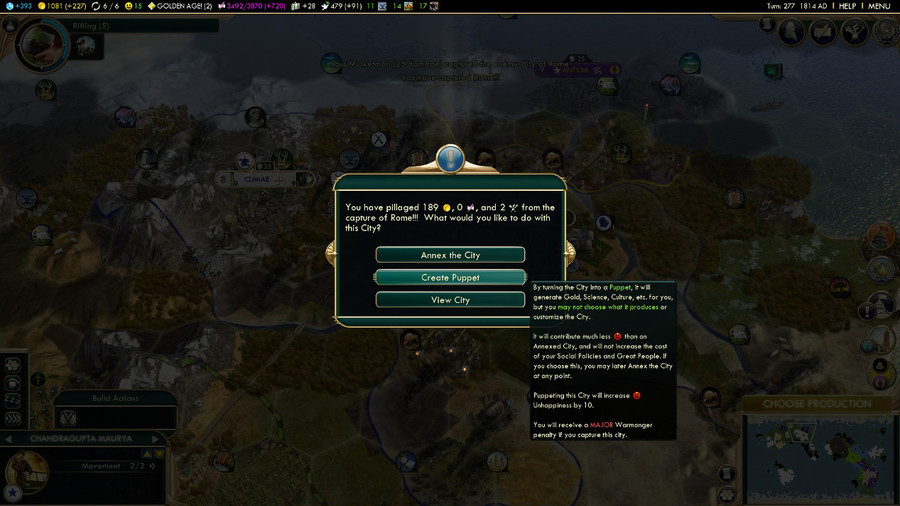
The Roman comes face to face with the triumvirate of Salazar, Almeida, and the President.
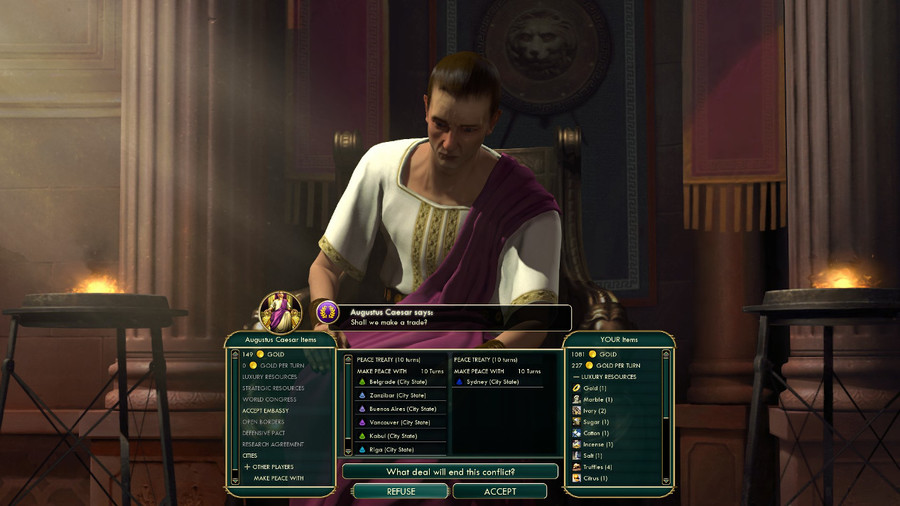
His offer still does not include the last Assyrian city that he has seized.
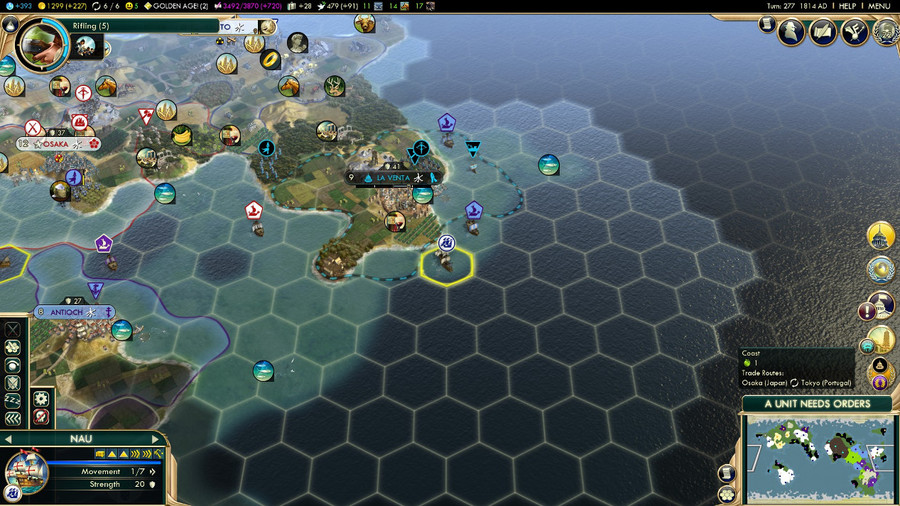
"Look around you, Senhor. You think that you are in a position to negotiate over one city? We practically rule all others, and you have nary a leg to stand on." Salazar looms over the Roman Imperial throne.
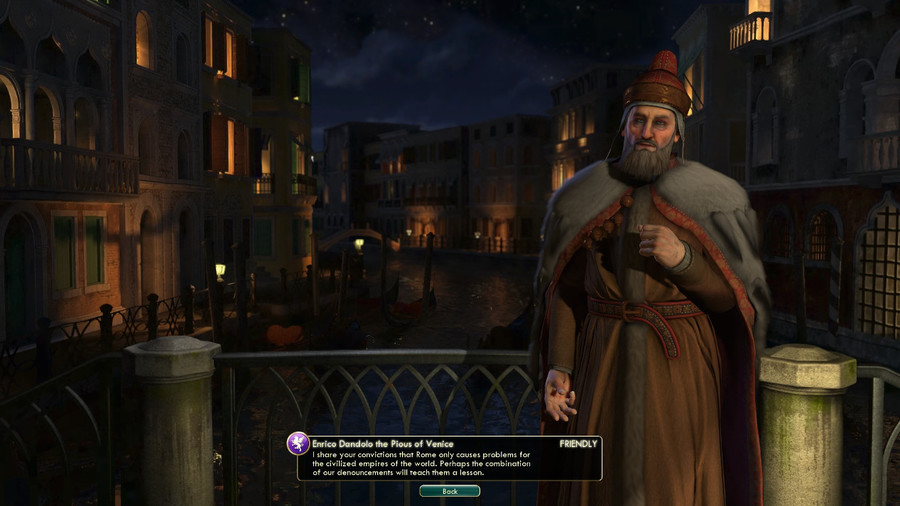
"Even the likes of Dandolo treat you as a hated enemy, and no one will mourn your passing should we decide to end your ambitions here."
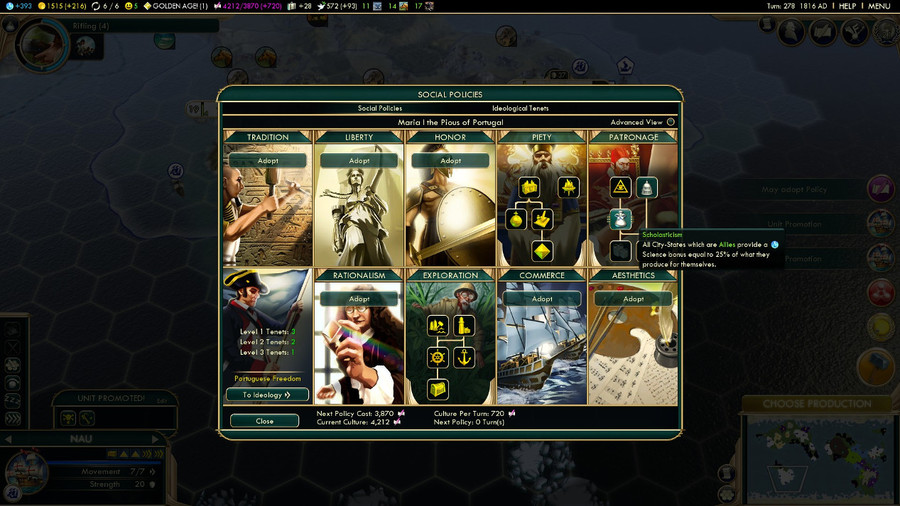
"You have failed to learn from your past mistakes, and Sebastião knows that this is a sin graver than all others."

"However, since you have decided to tarry, it again must fall to us to make your decision for you."
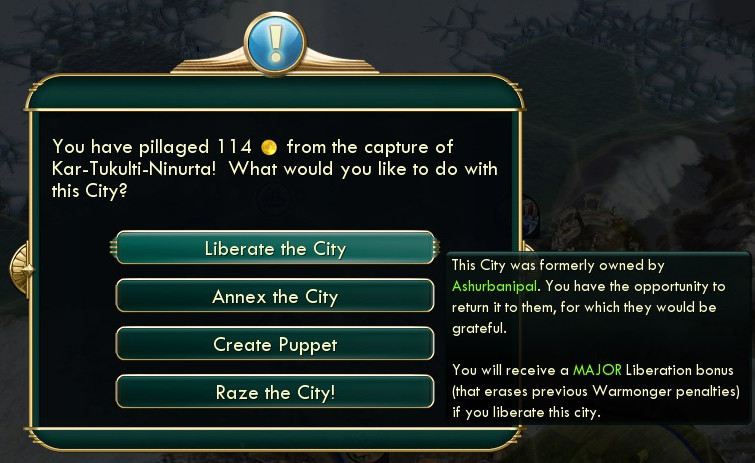
"This is a confirmation that the last Assyrian city has been returned to them. Your magistrate has offered his unconditional surrender.”
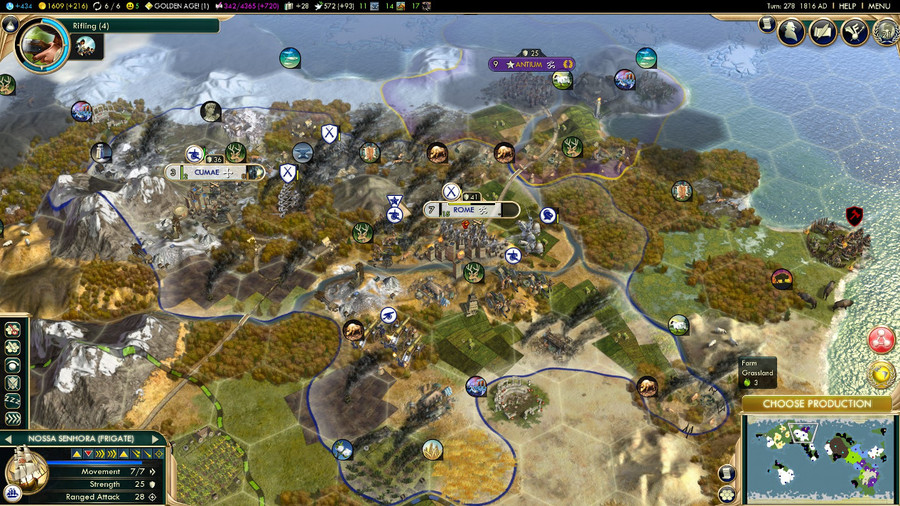
“This war is at an end, and you can look forward to ruling over your frozen hovel for what remains of your life.”
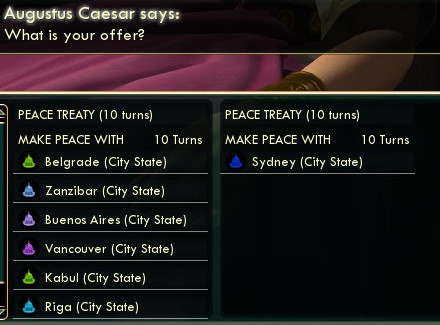
The Roman Emperor signs the papers that Almeida offers him, his hand heavy as his title becomes Governor of Antium.
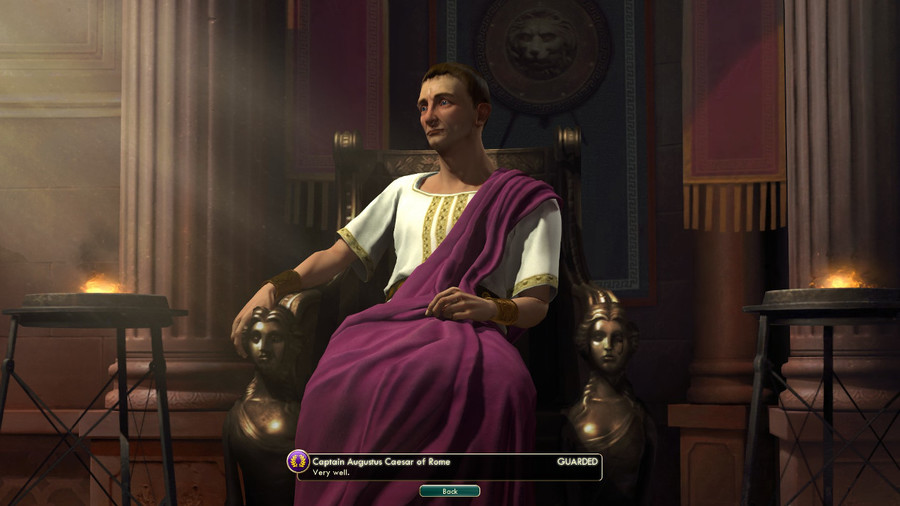
He slides back into his chair, his posture considerably relaxed. He regards the President wearily.
“After all this, there is just one message I was hoping to give you.”
The President turns her attention to the Roman, and he suddenly surges forward, brandishing a knife.

Almeida’s reaction is immediate, and his pistol shot strikes the Roman squarely in the leg. The ex-emperor falls, wincing visibly, but does not betray any cries of pain. The rest of the Portuguese entourage carts him away, and Salazar wryly notes that the Roman’s habit of remaining seated for discussions is henceforth no longer due to his choice.
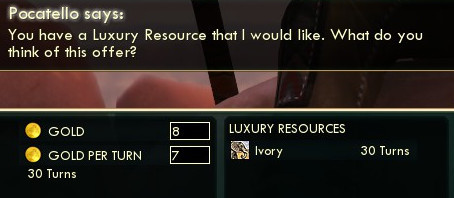
Pocatello still makes a generous offer considering his treatment at the hands of the Portuguese, and for their part, the Portuguese accept favourable deals on principle above diplomatic finger-wagging.
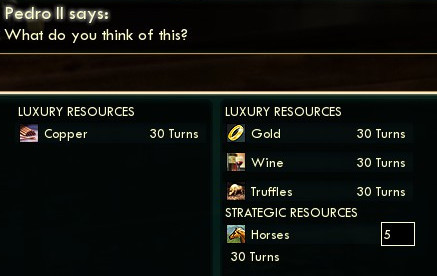
Pedro receives a much more favourable deal for his last remaining stockpile of Copper.
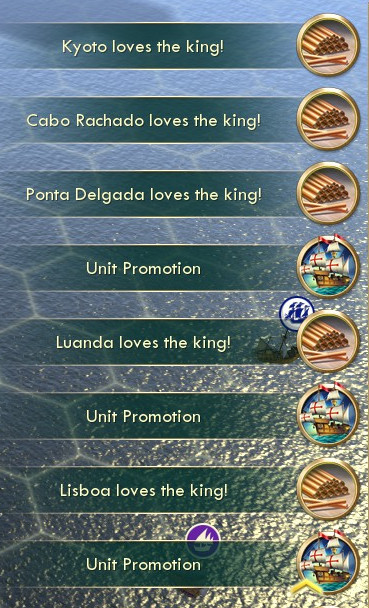
The people of Portugal are ecstatic for the opportunity to work with this strange new metal.

Yet, as it must always, there remains a sense that somehow, the best years for the Portuguese people are behind them.
Such is Fado.
Well, sorry for taking so long with this update, but in the hopes of making it up to you, I would like to propose that we mix things up a bit on the front of determining what happens next.
For now until Saturday at 9 PM Eastern time, please feel free to suggest any measure that I should undertake going forward for the next update. Whether it be a change to the research plan, a diplomatic measure, a war declaration, a construction project, whatever. Name it, and I will do my utmost to not only implement it into the game, but integrate it into the narrative.
However, to ensure that the ideas in question ensure some consistent popularity, the only rule is that two people must agree on the course of action for it to become reality. If the thing gets two votes, it is in, but only if it gets two votes.
Maria still has some crazy in her yet, after all.
Até Sabado!